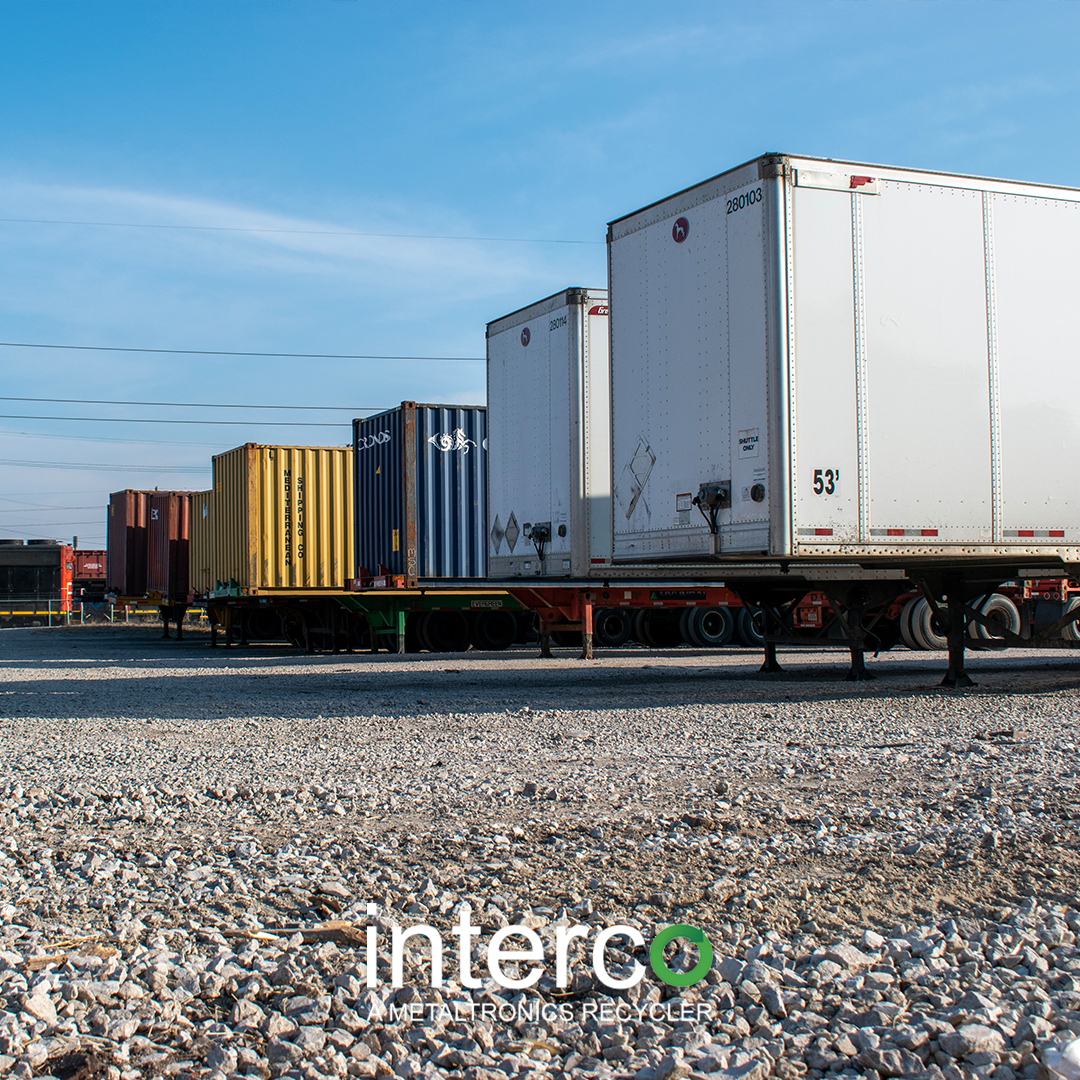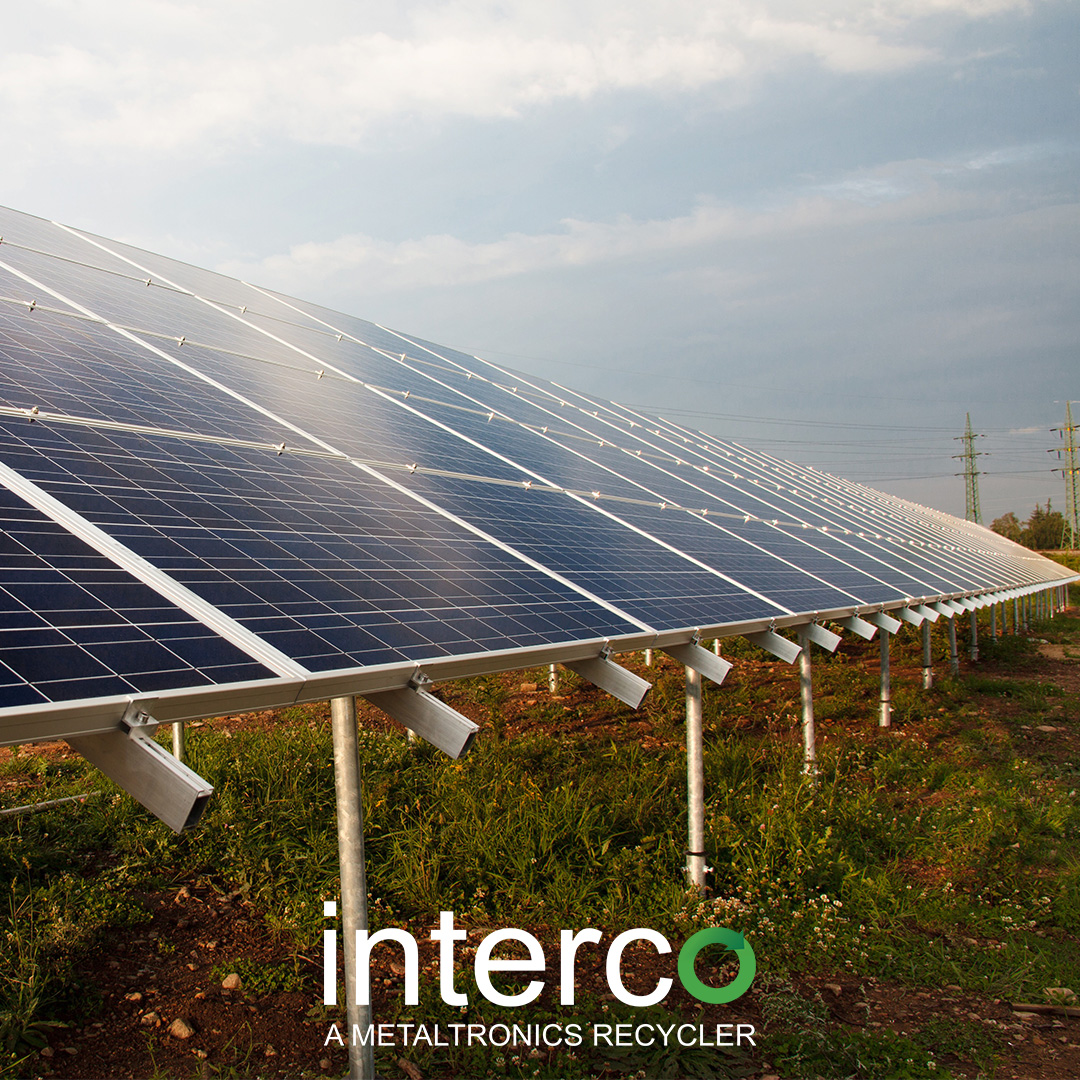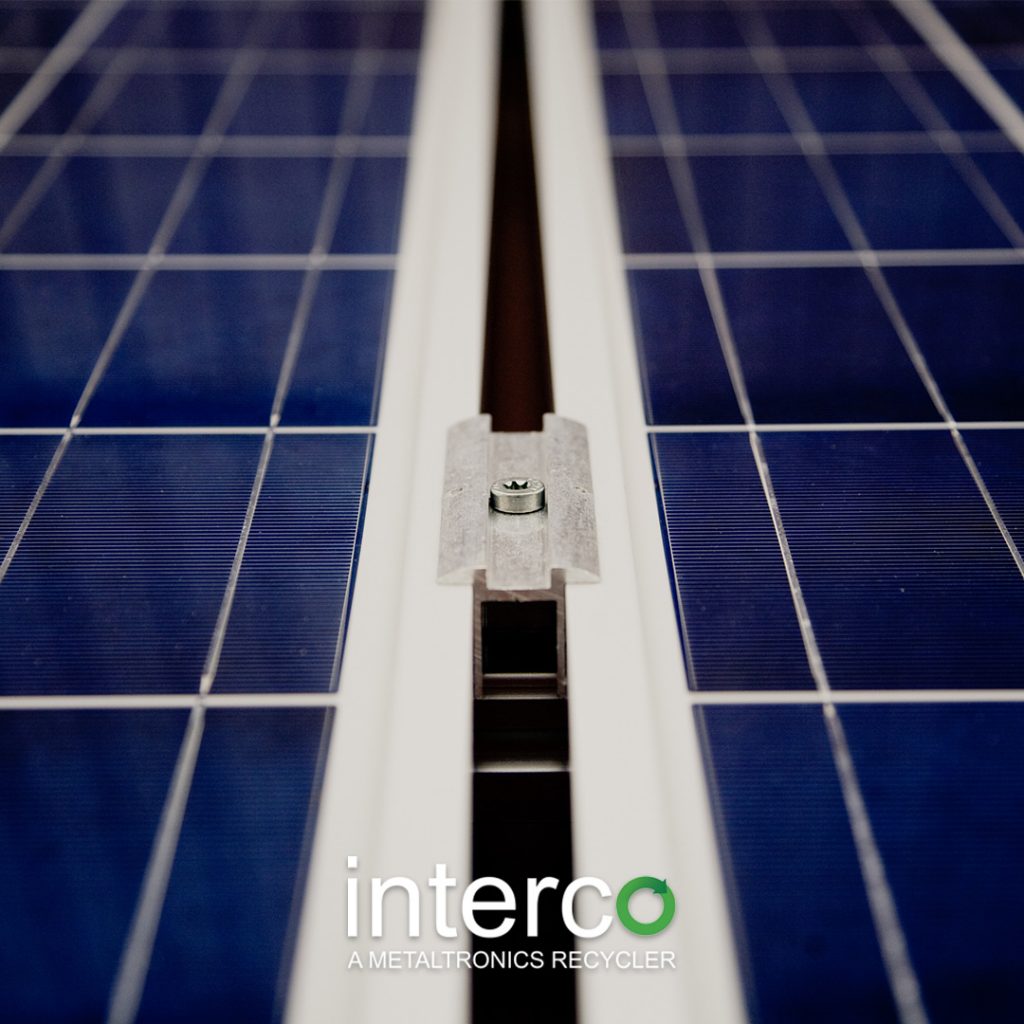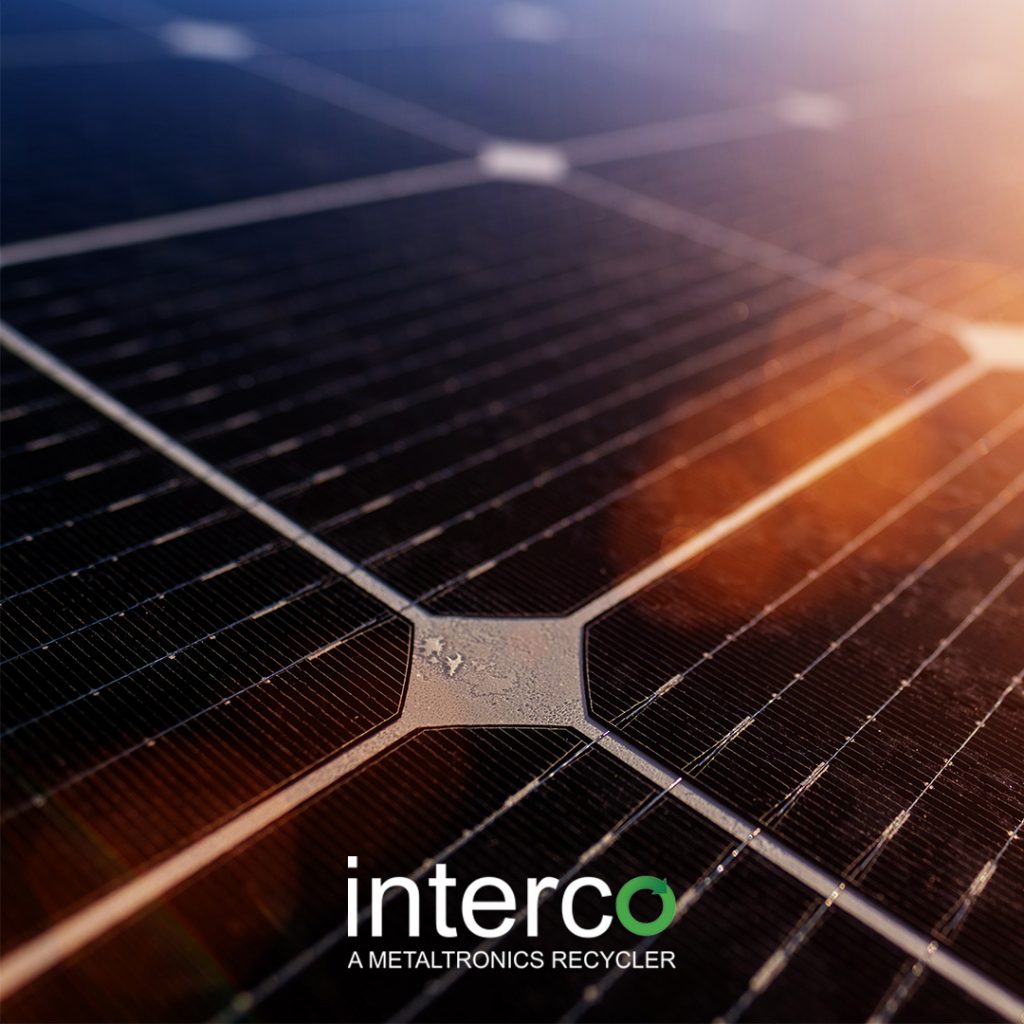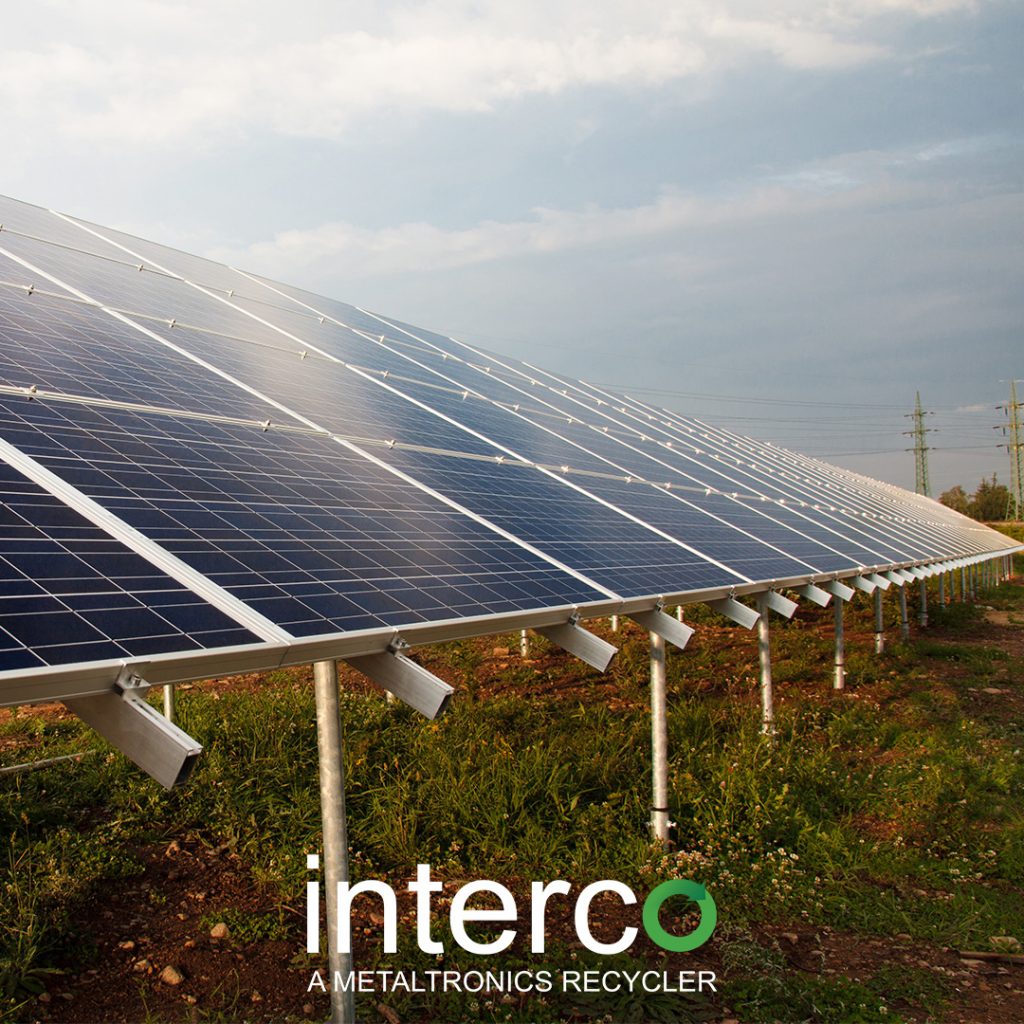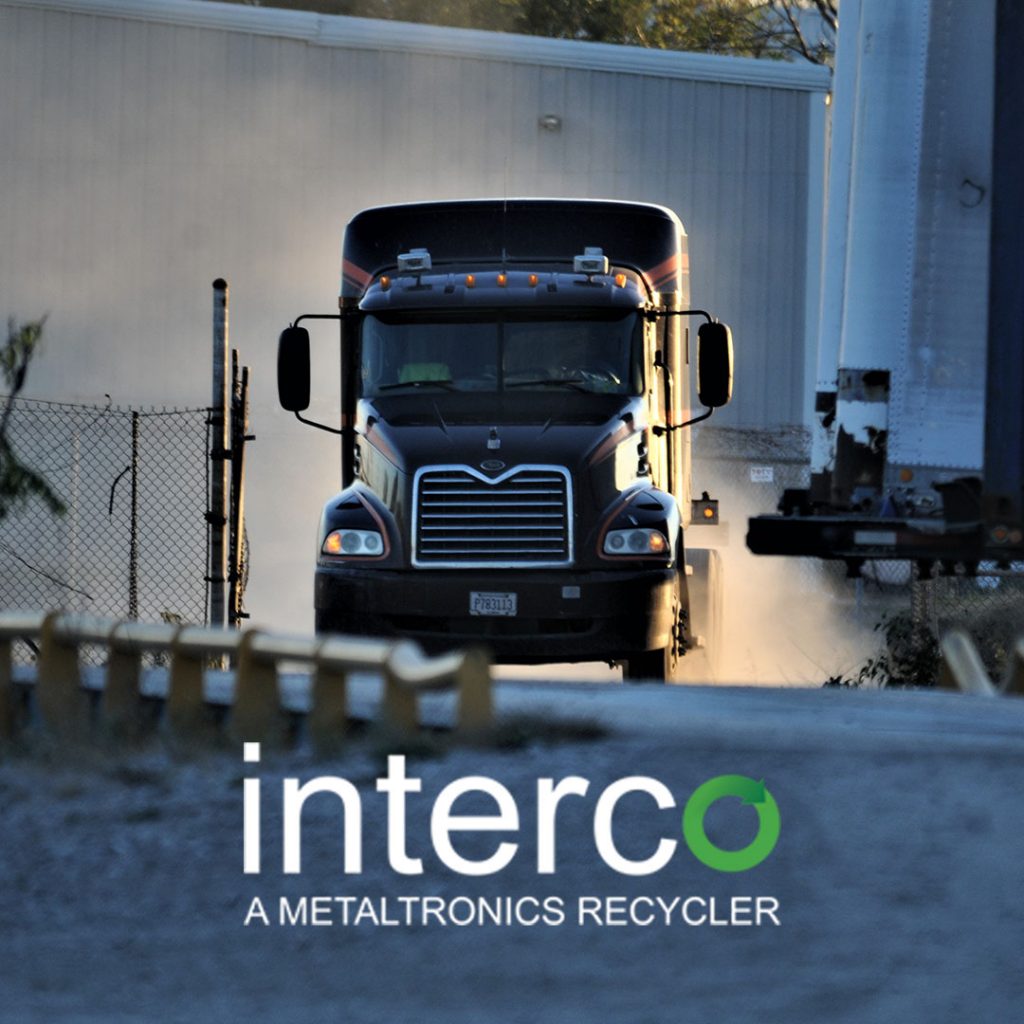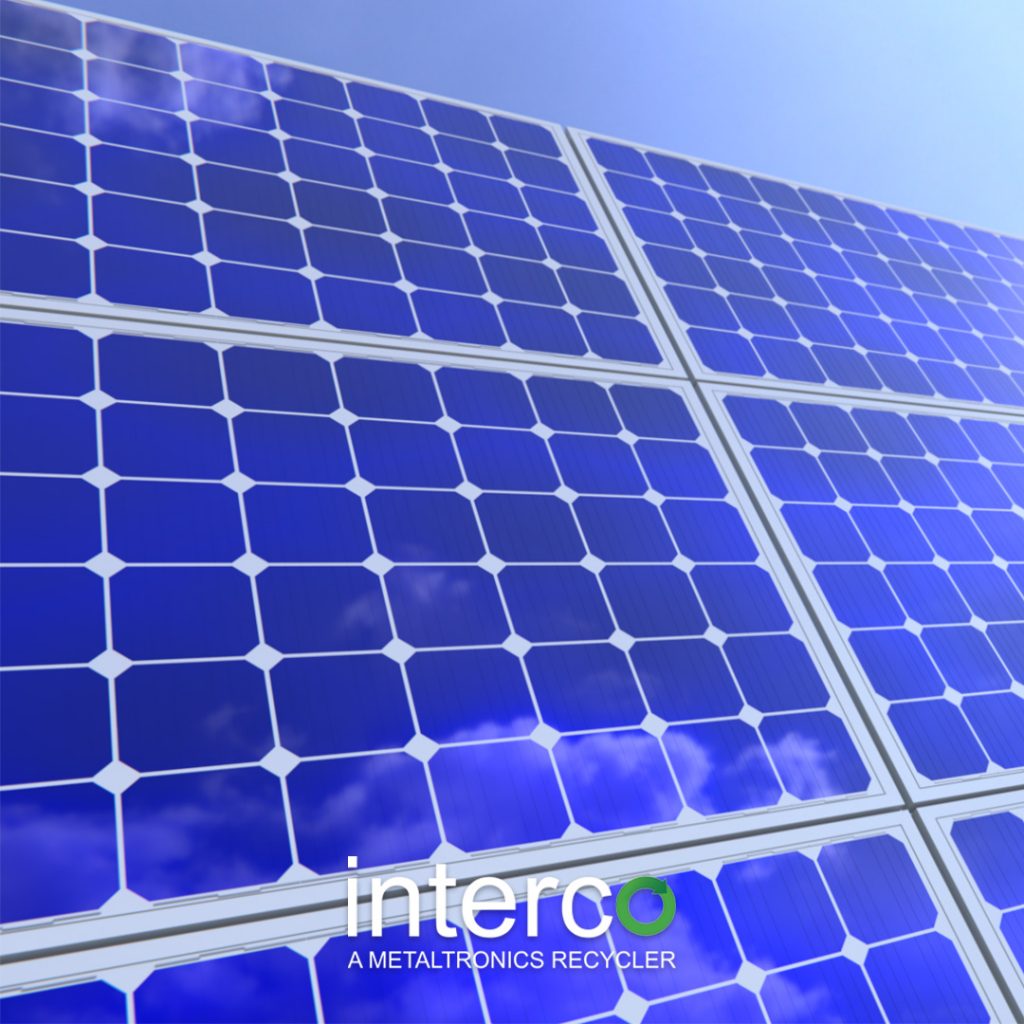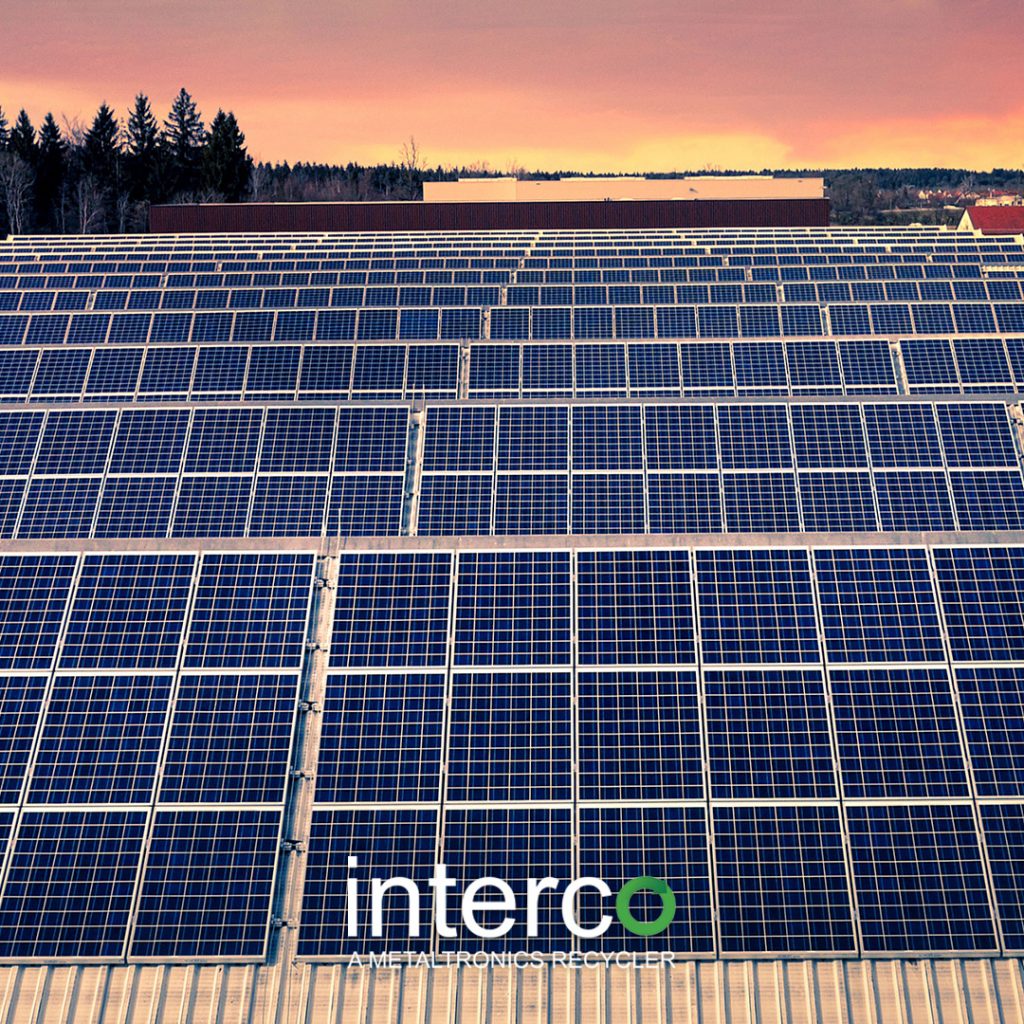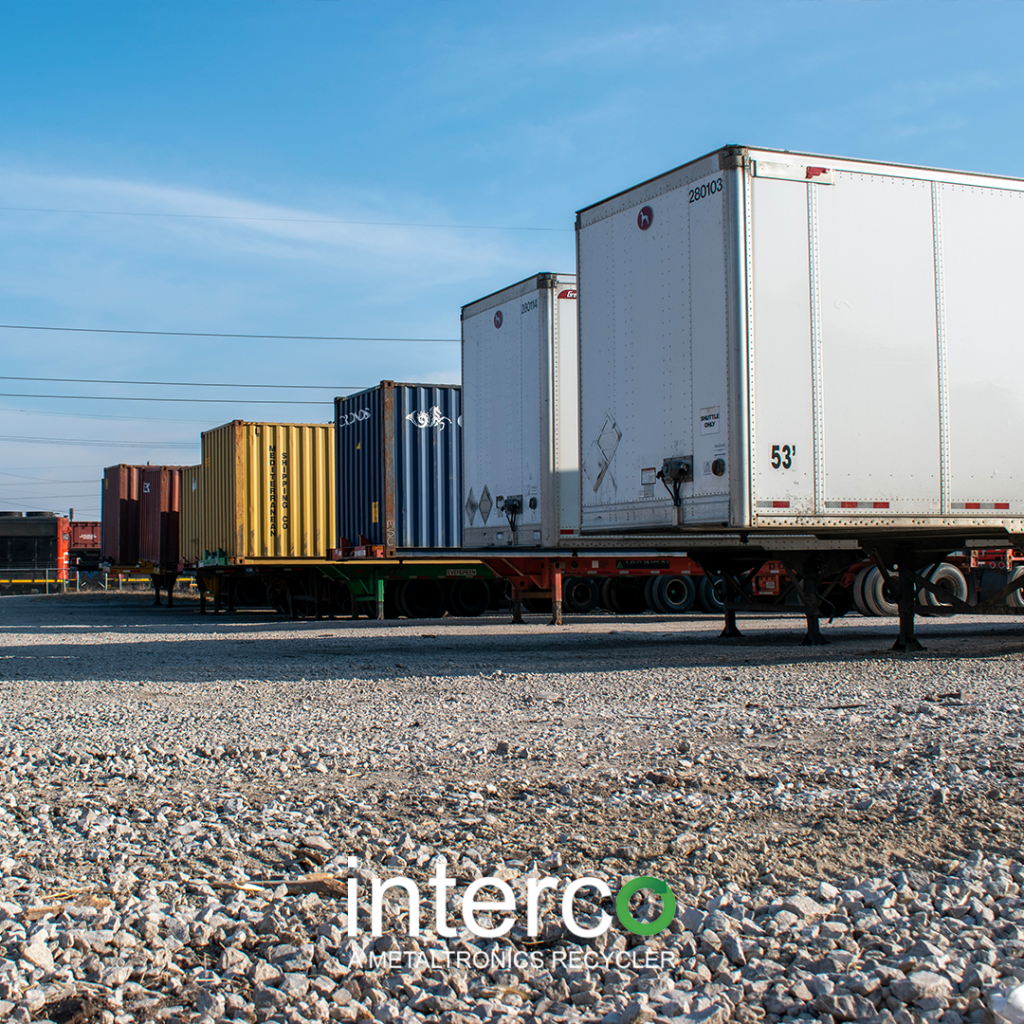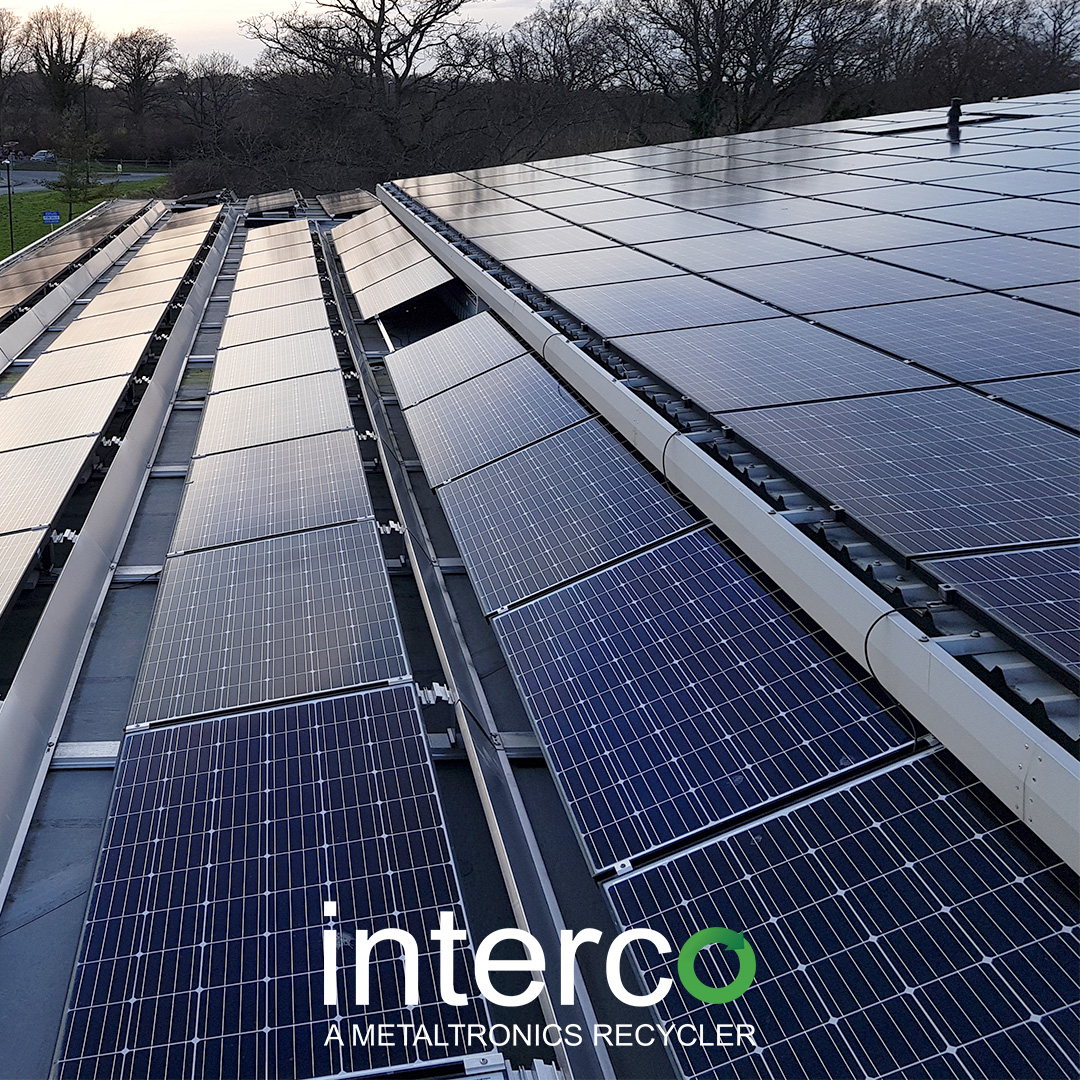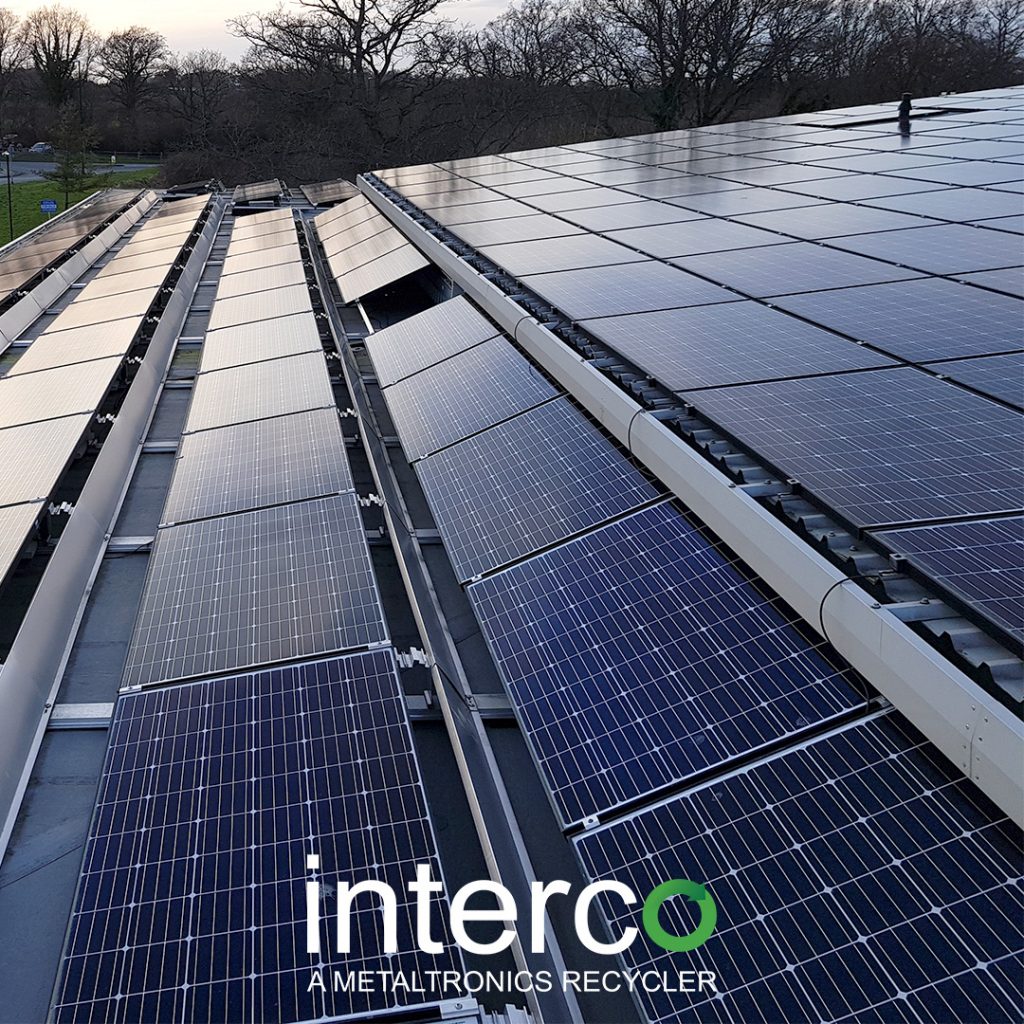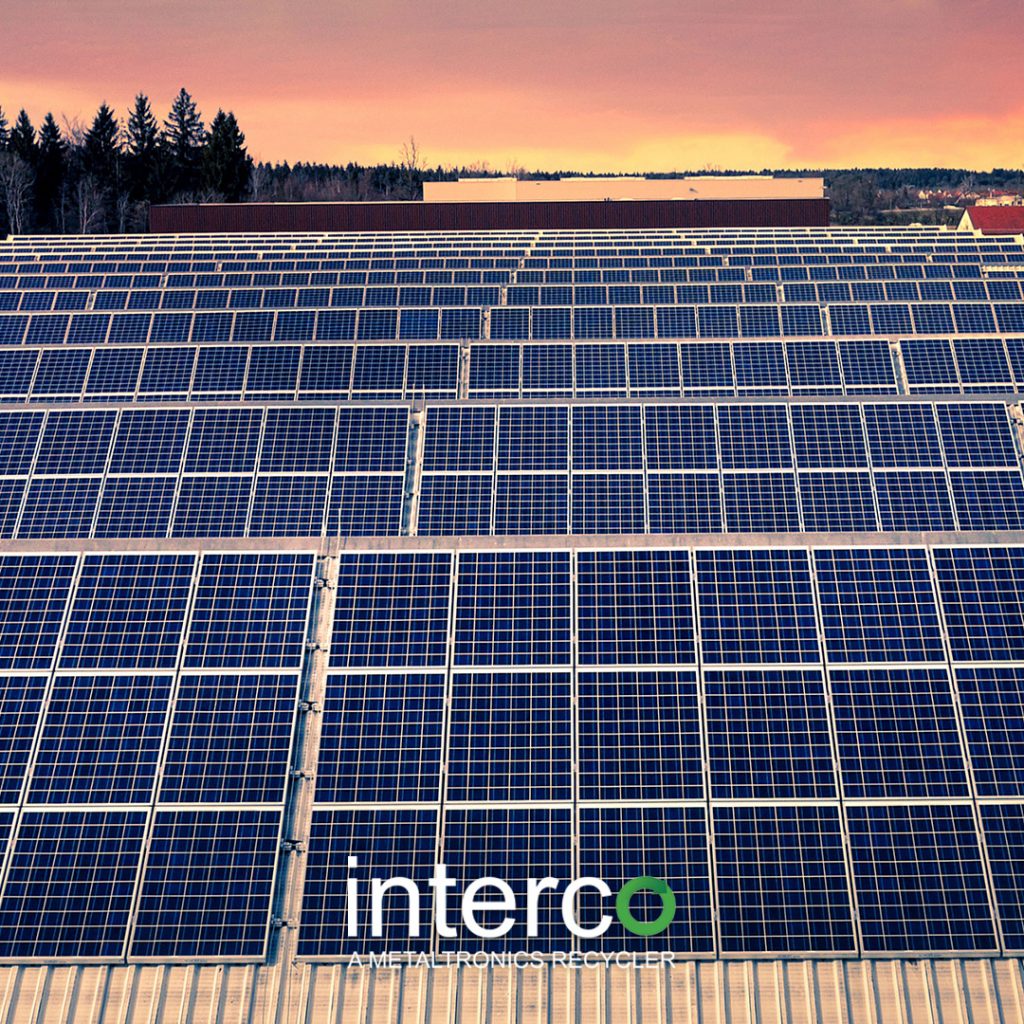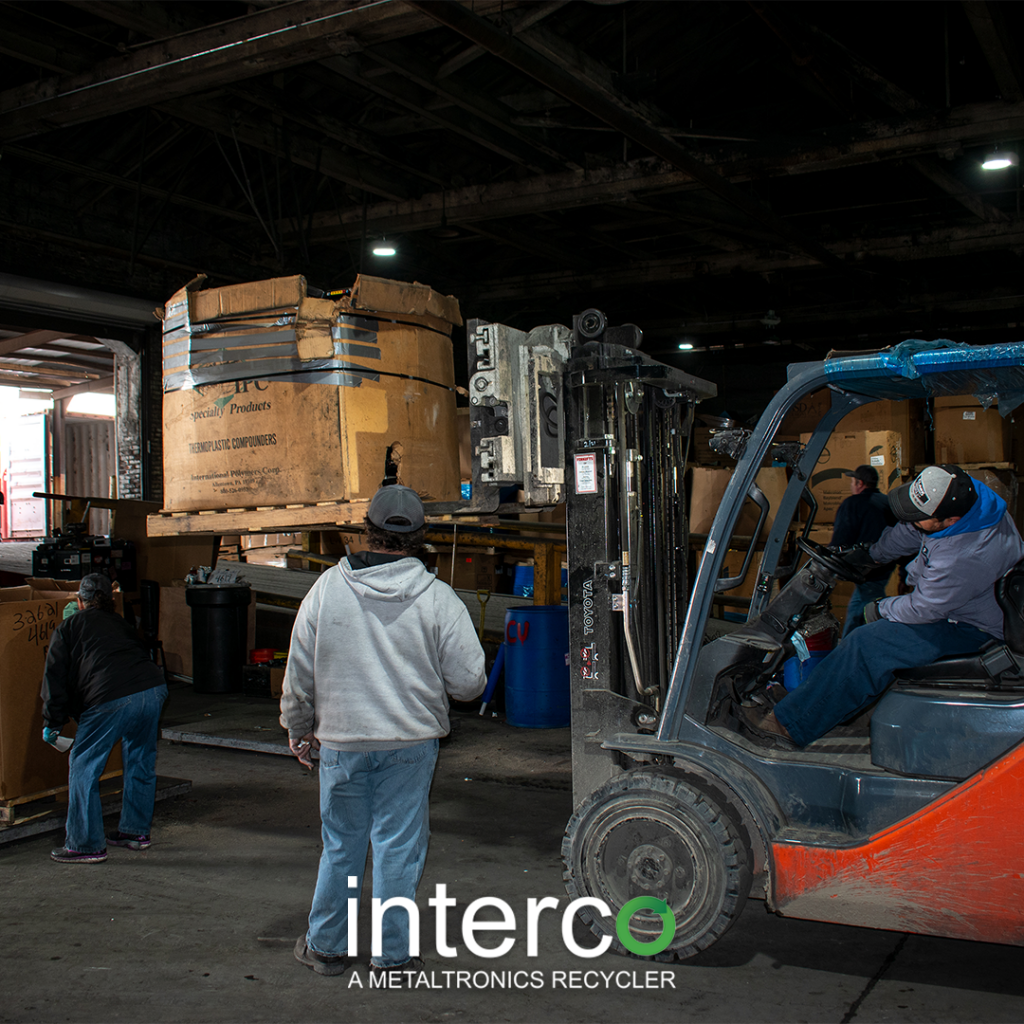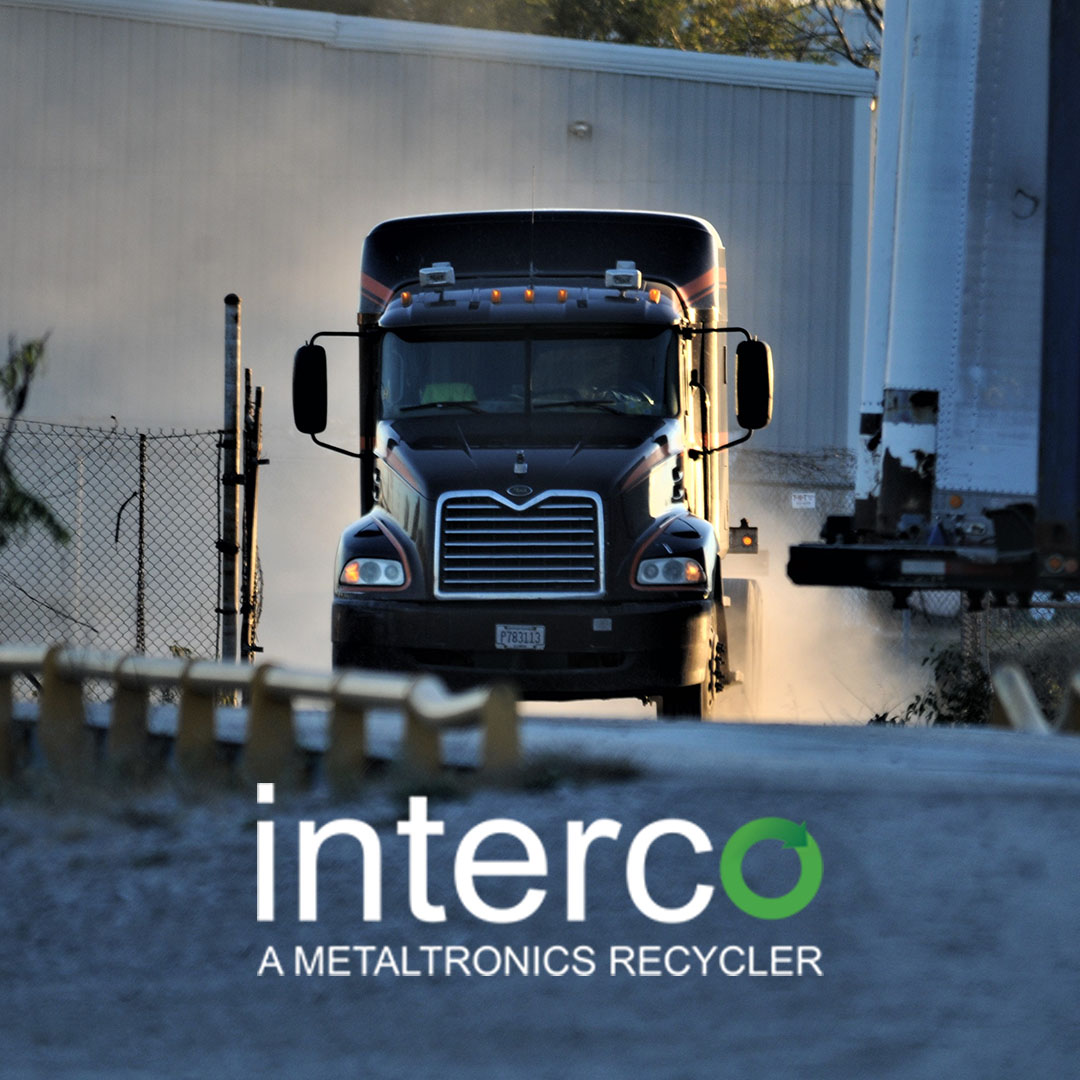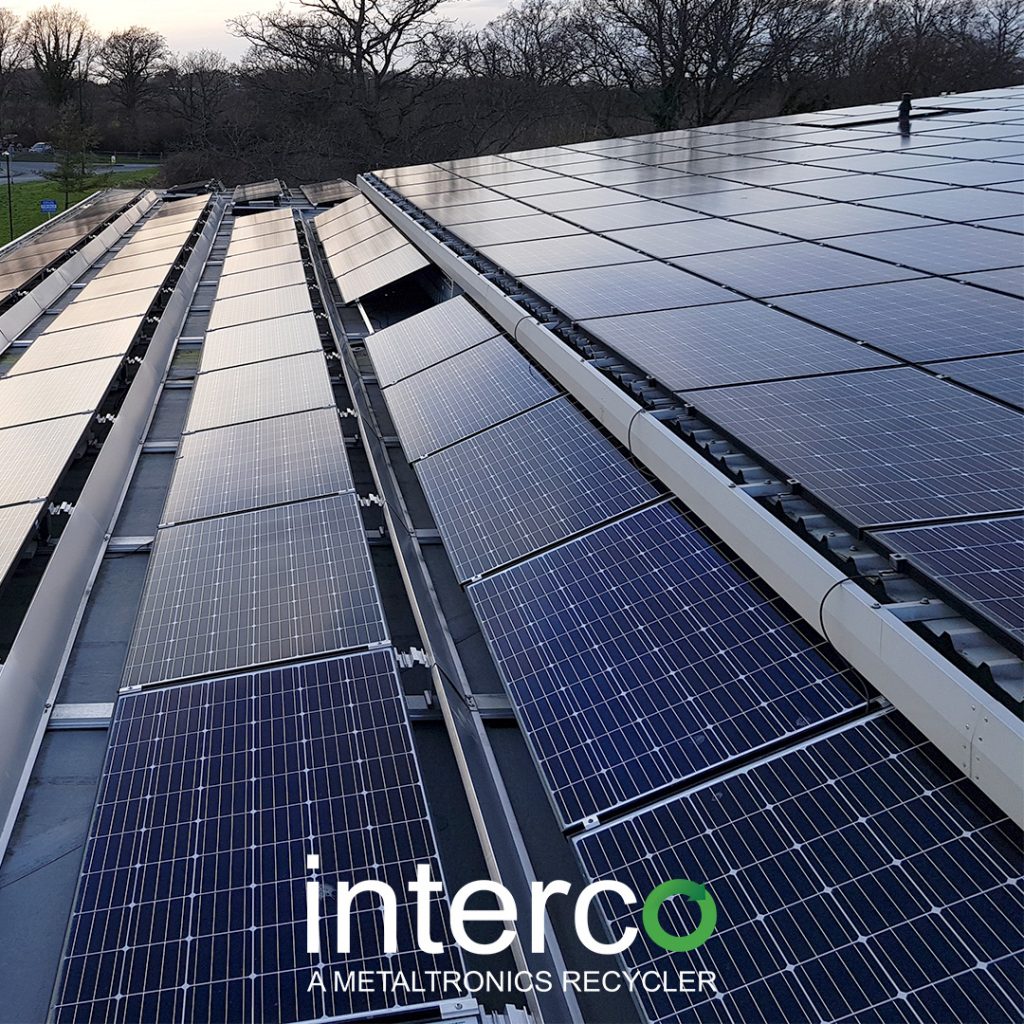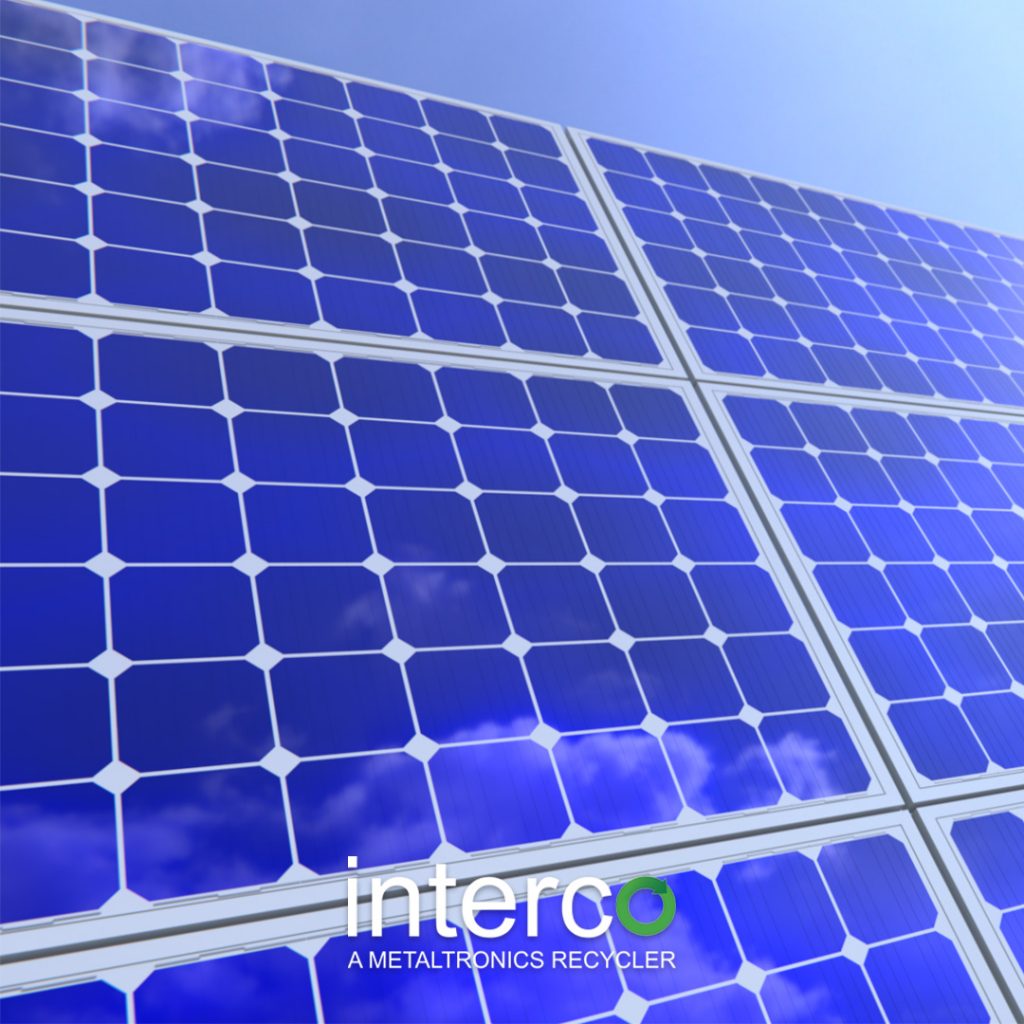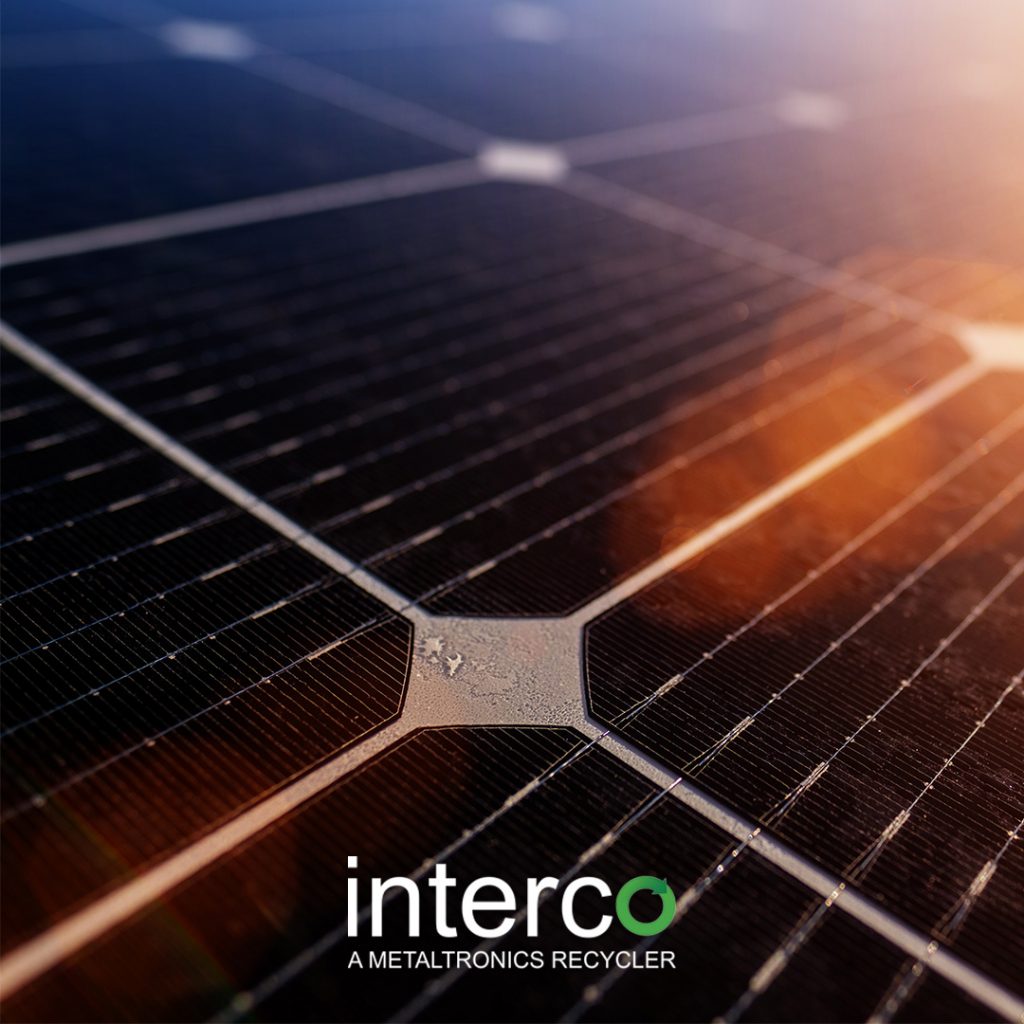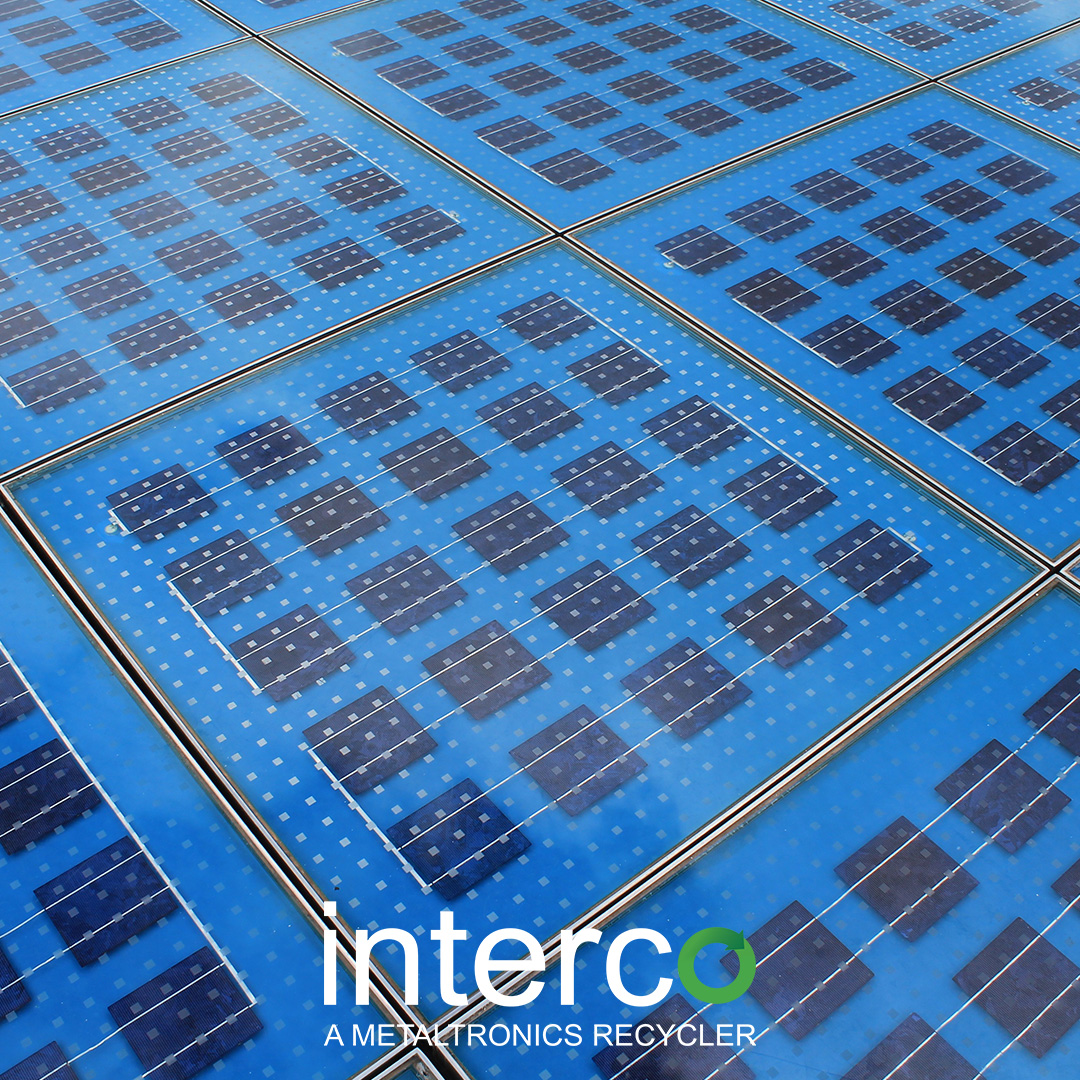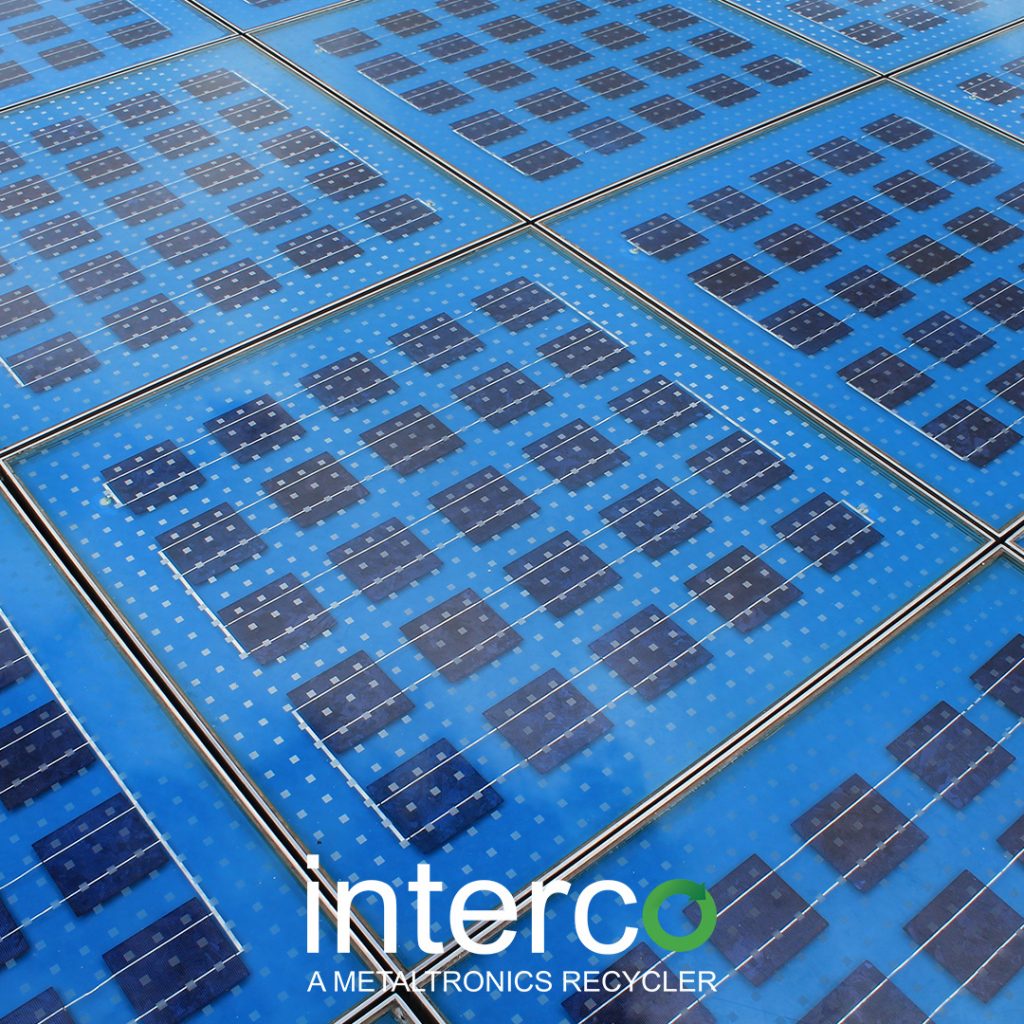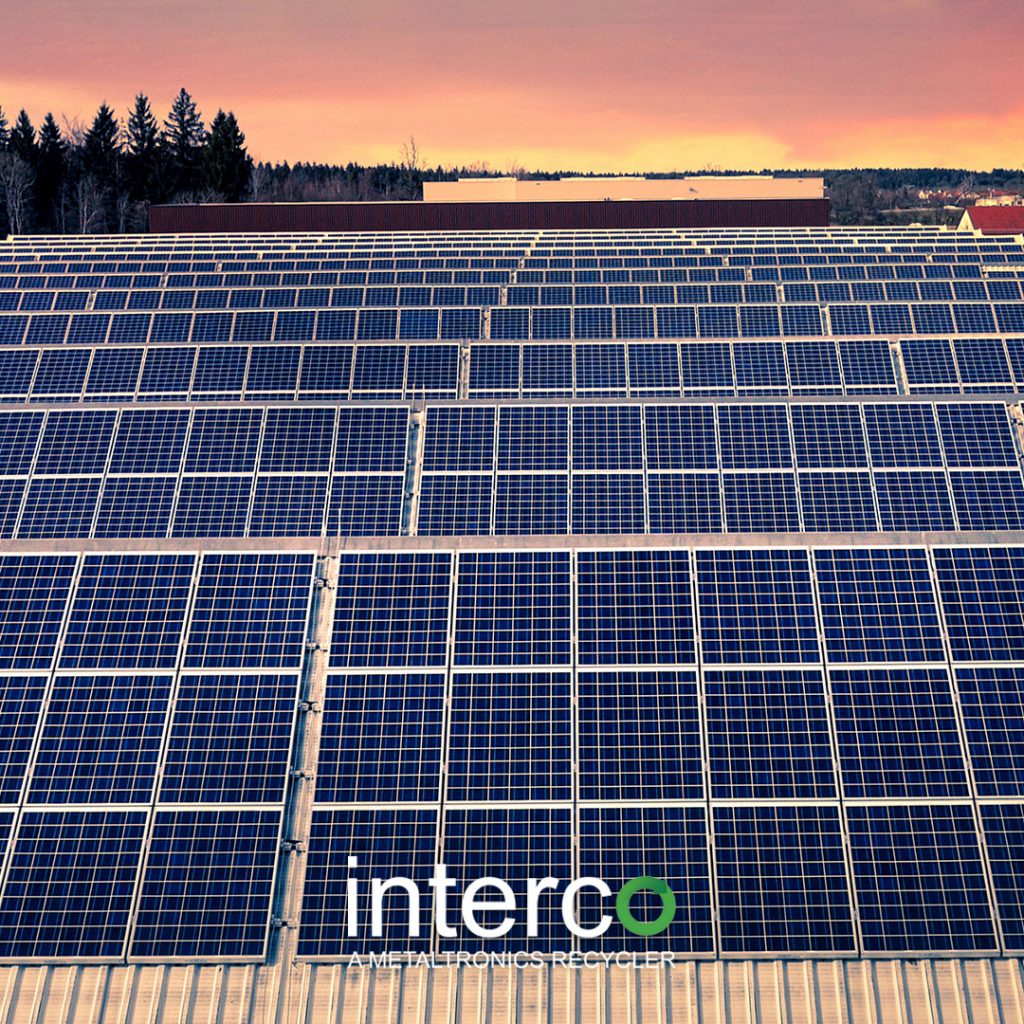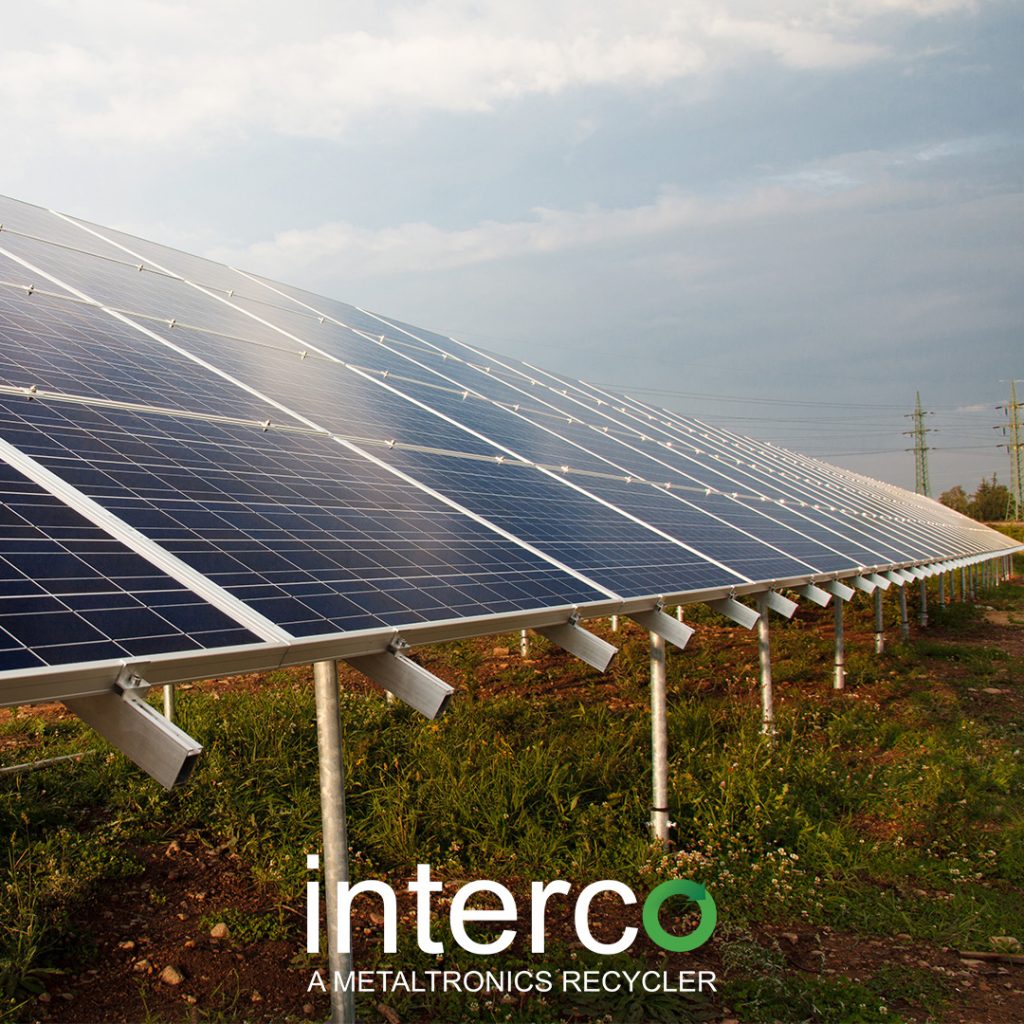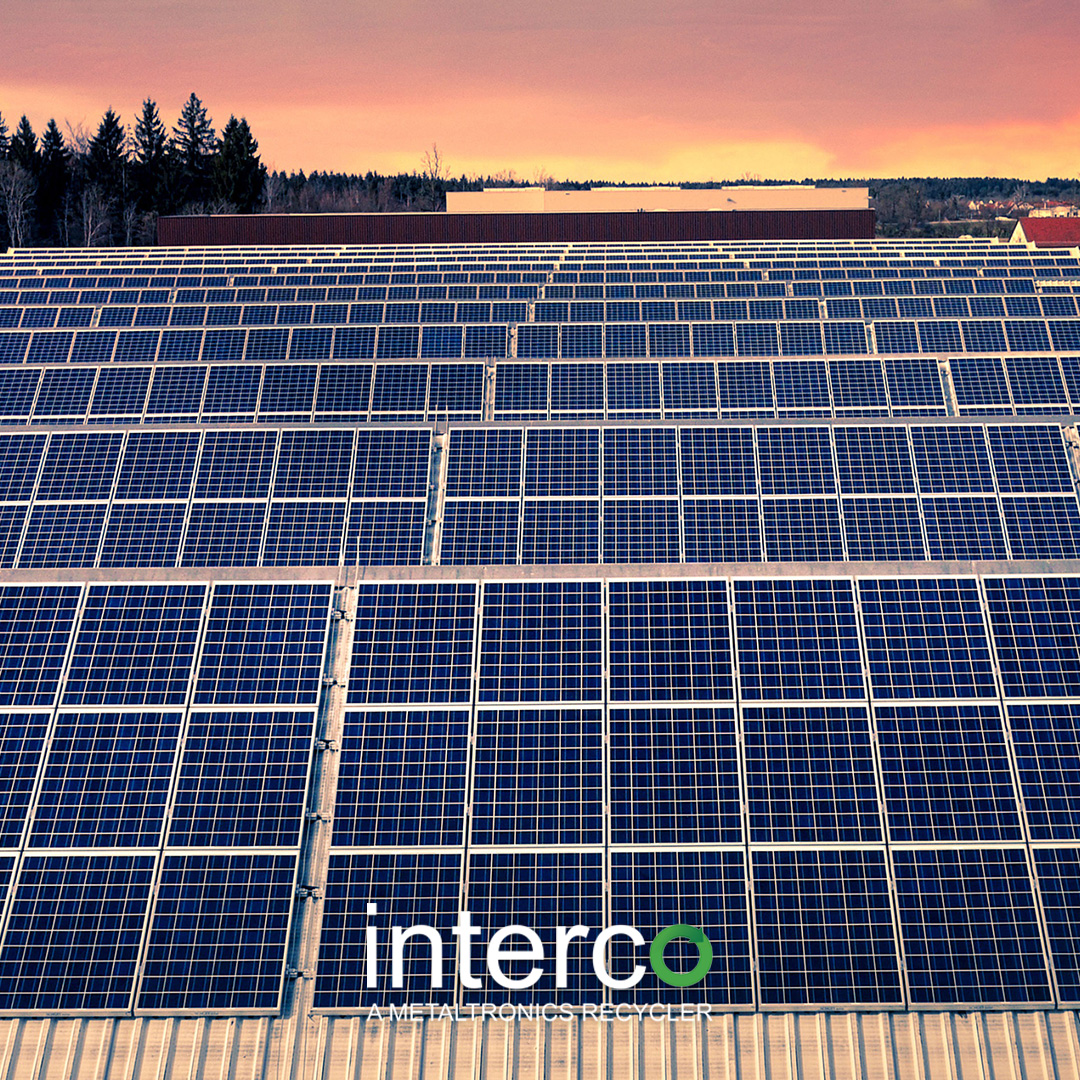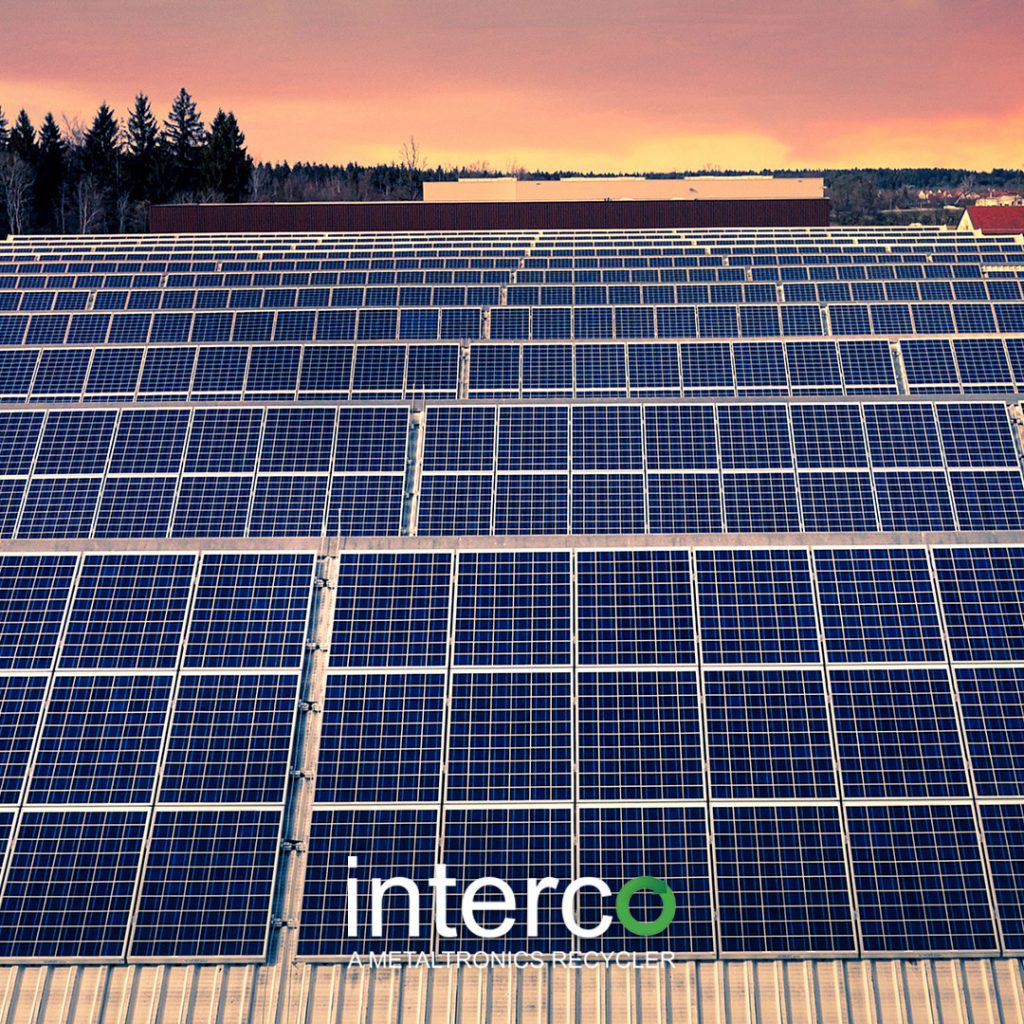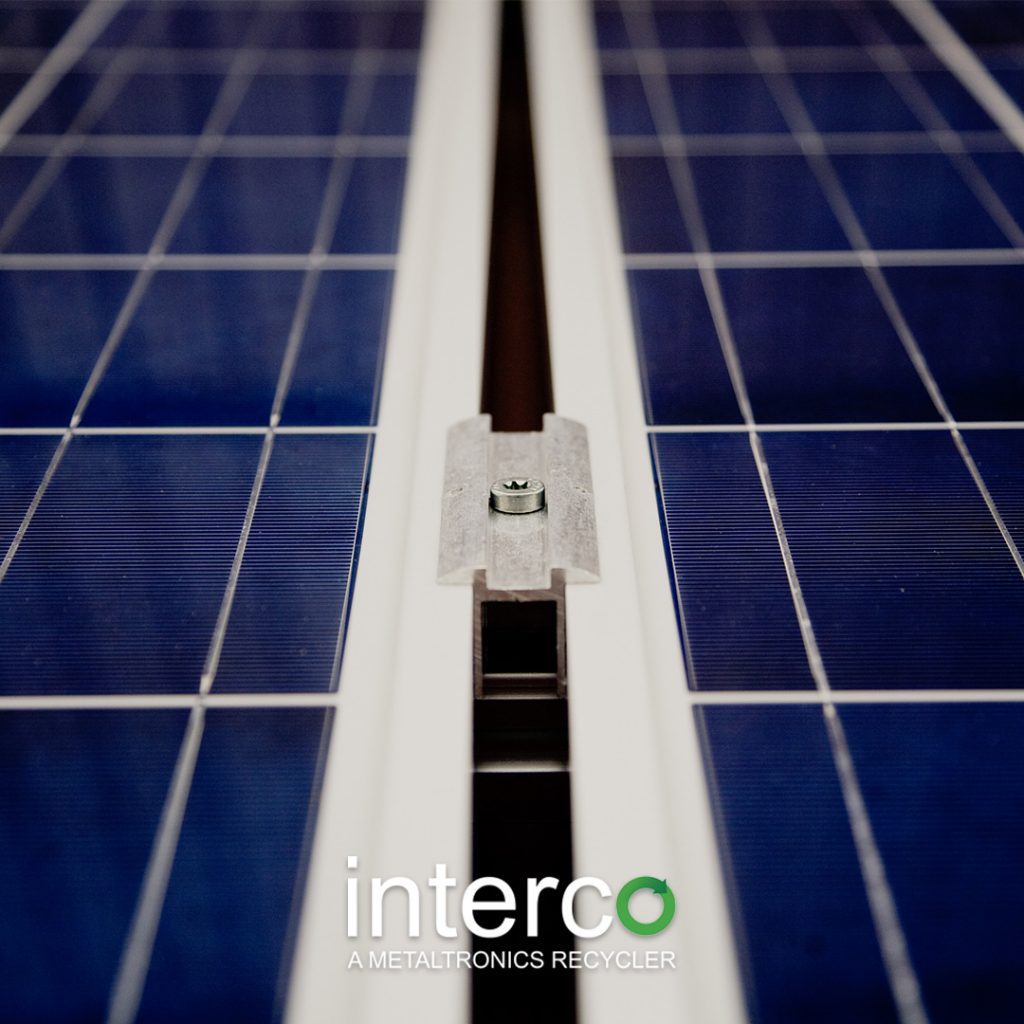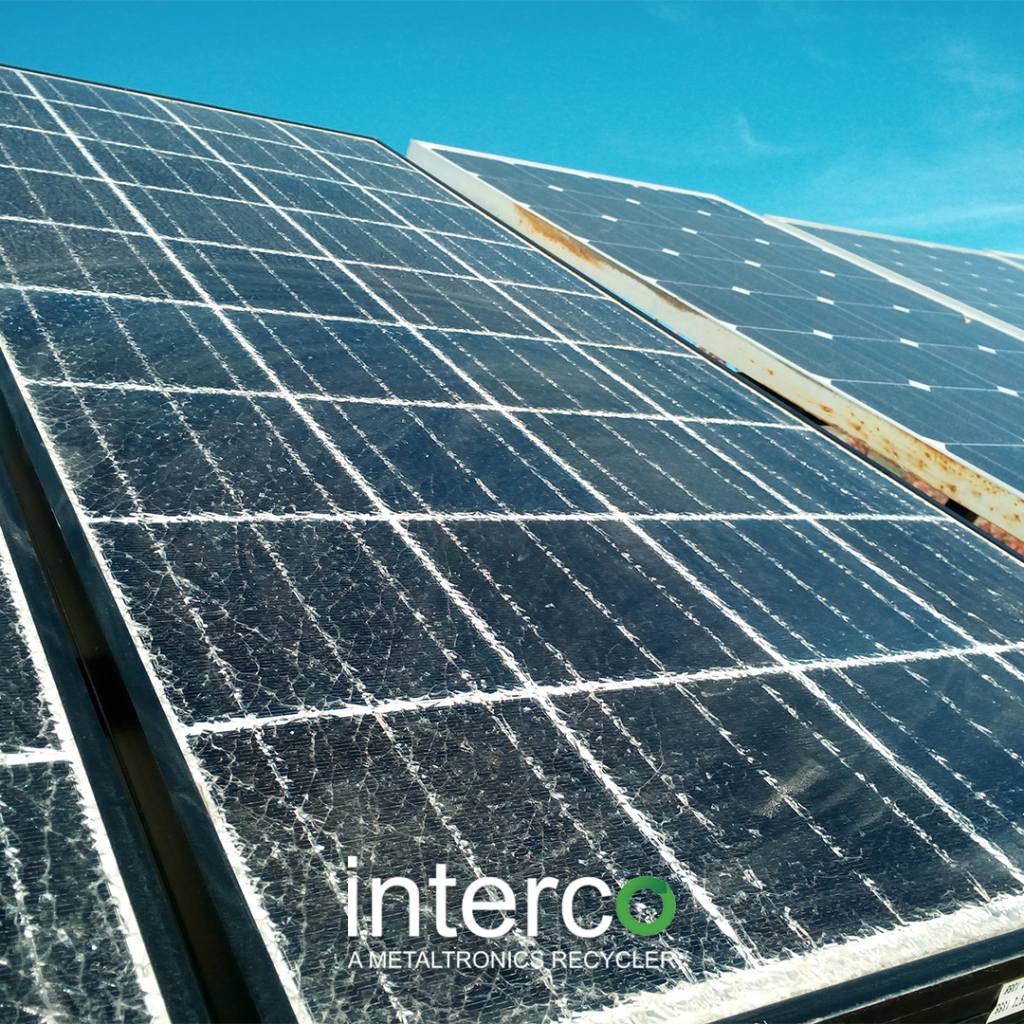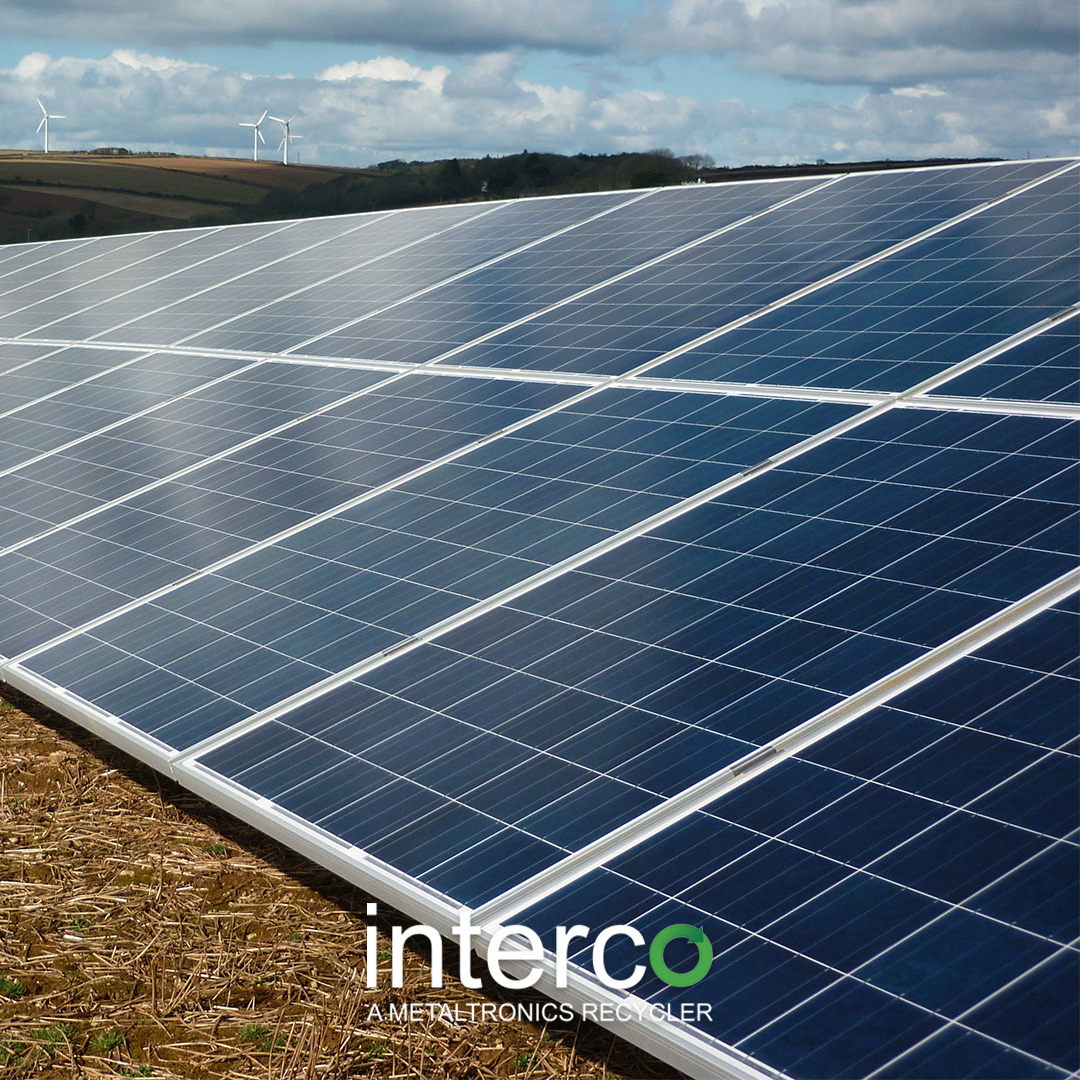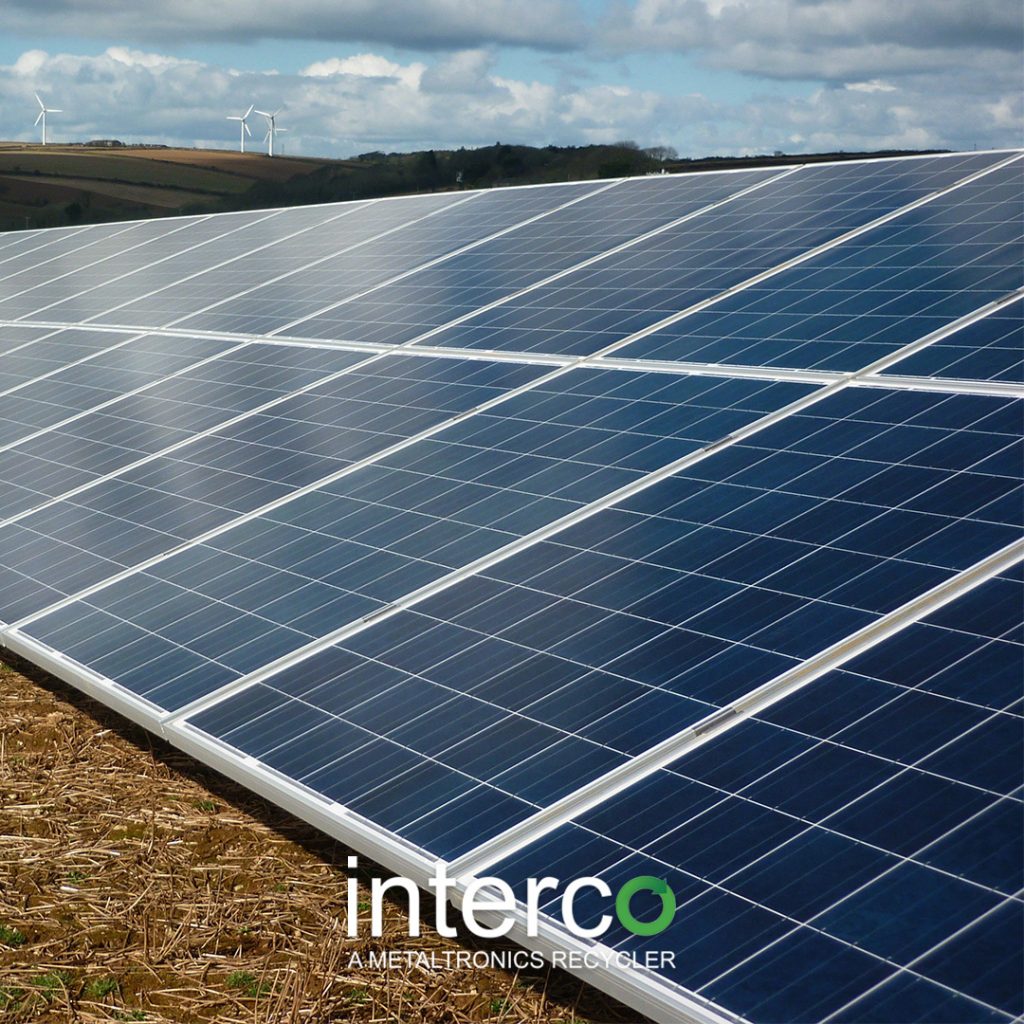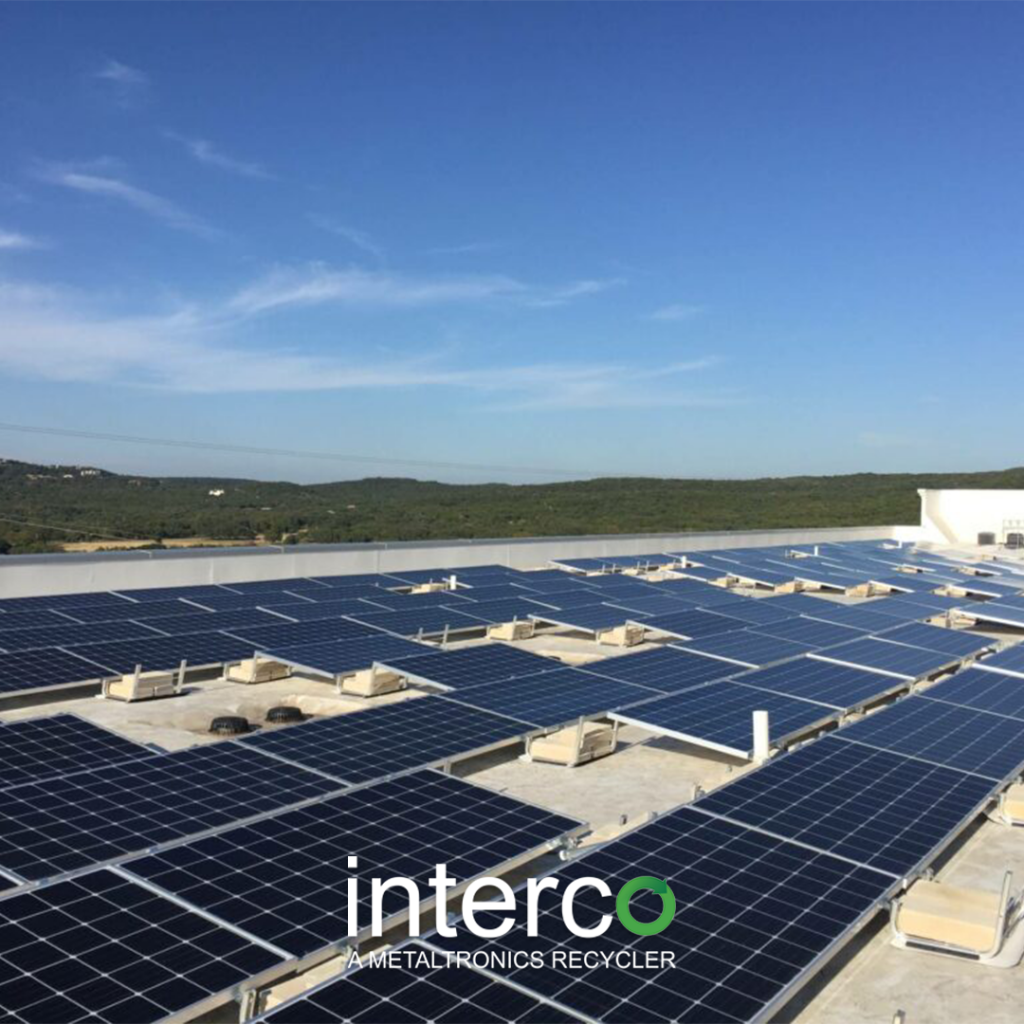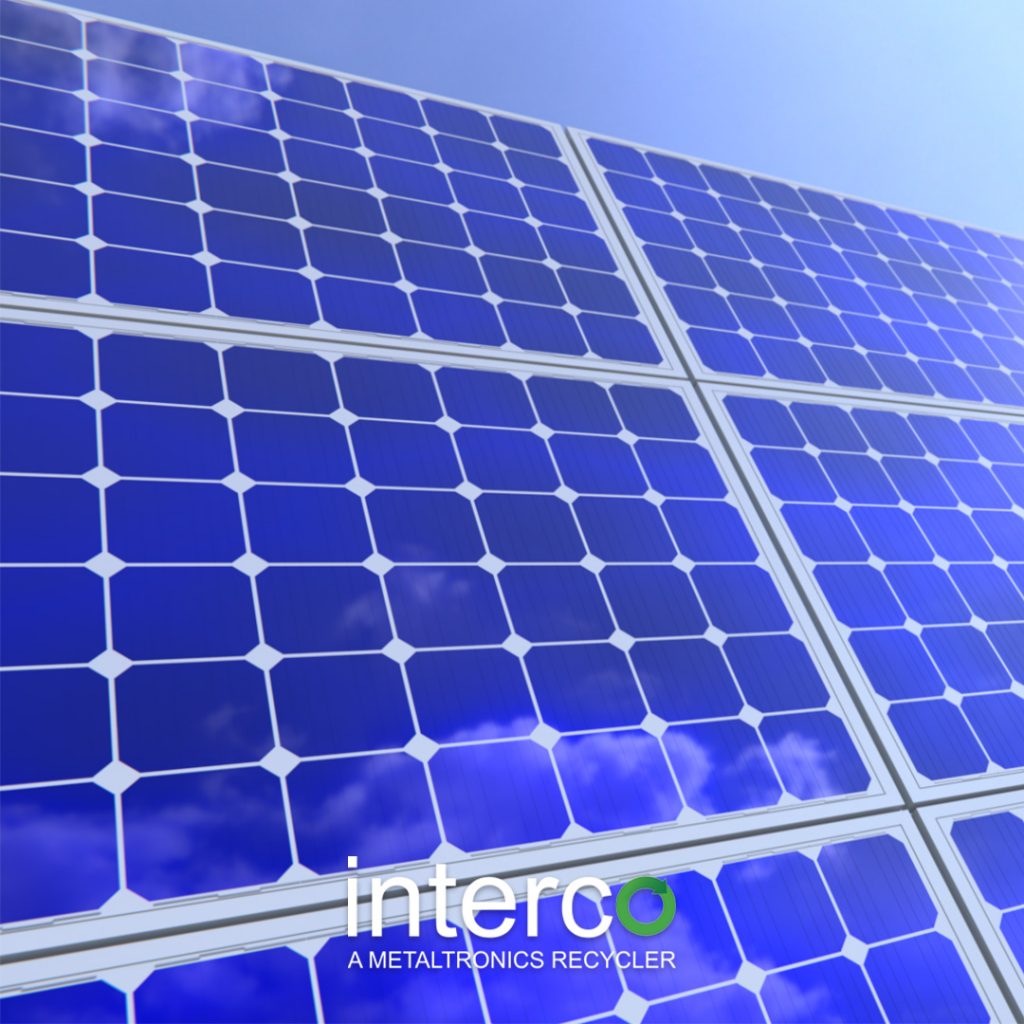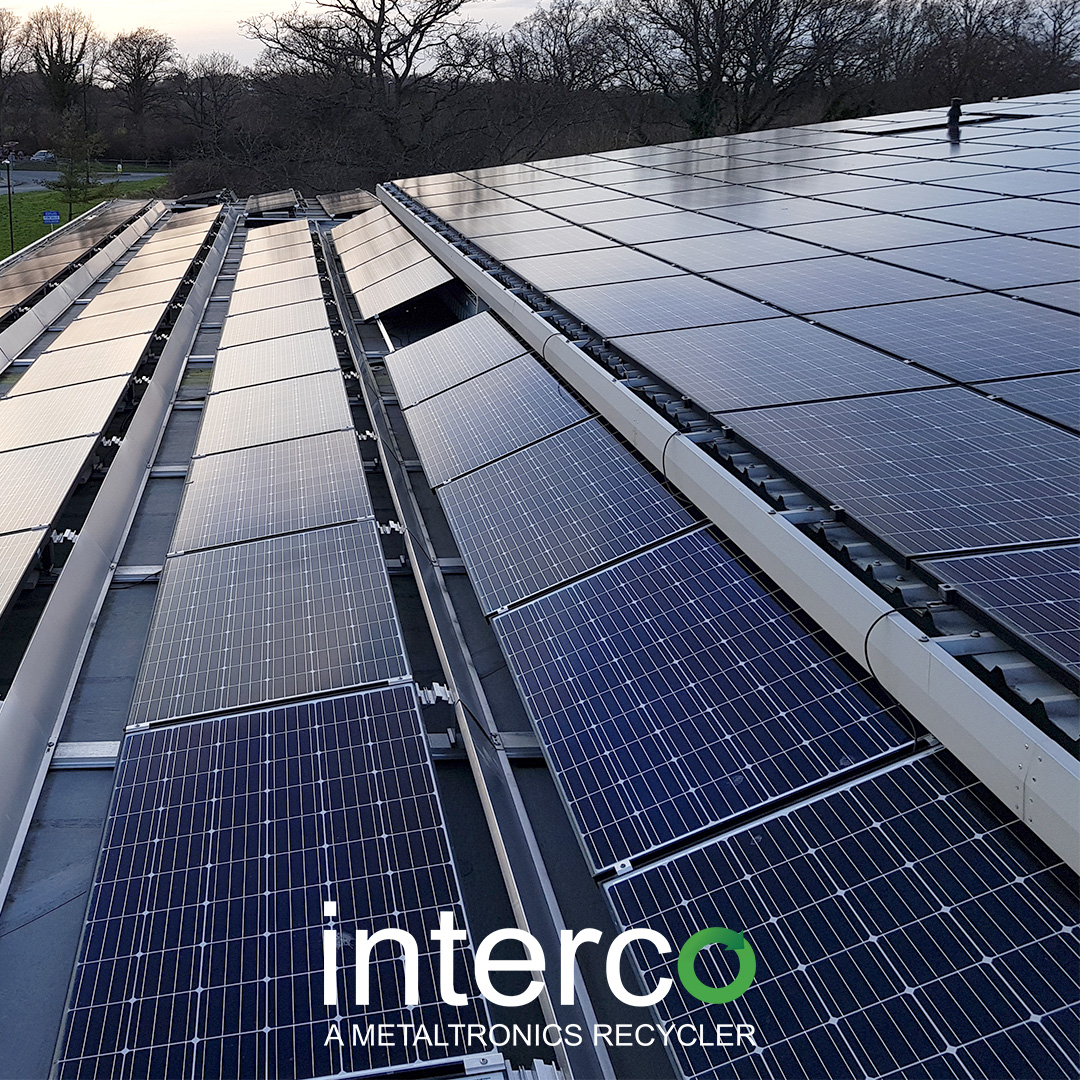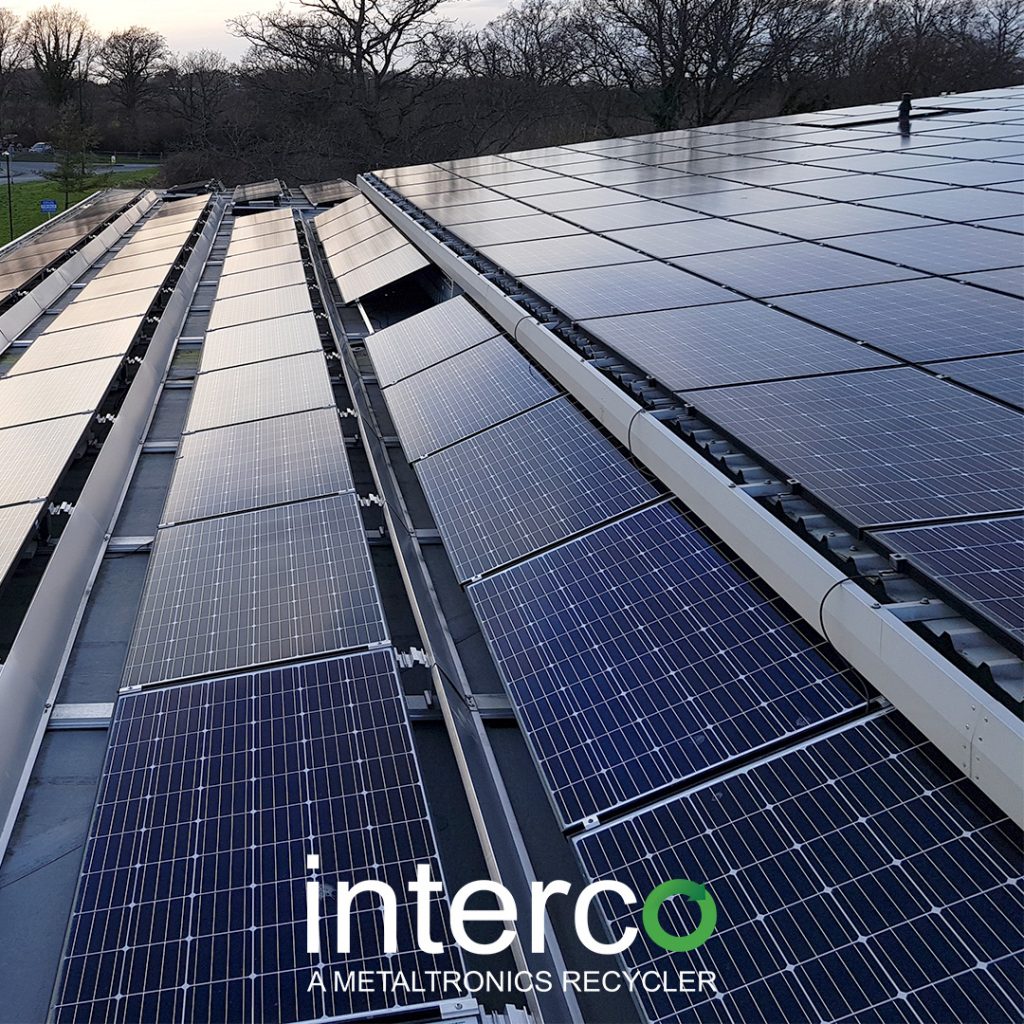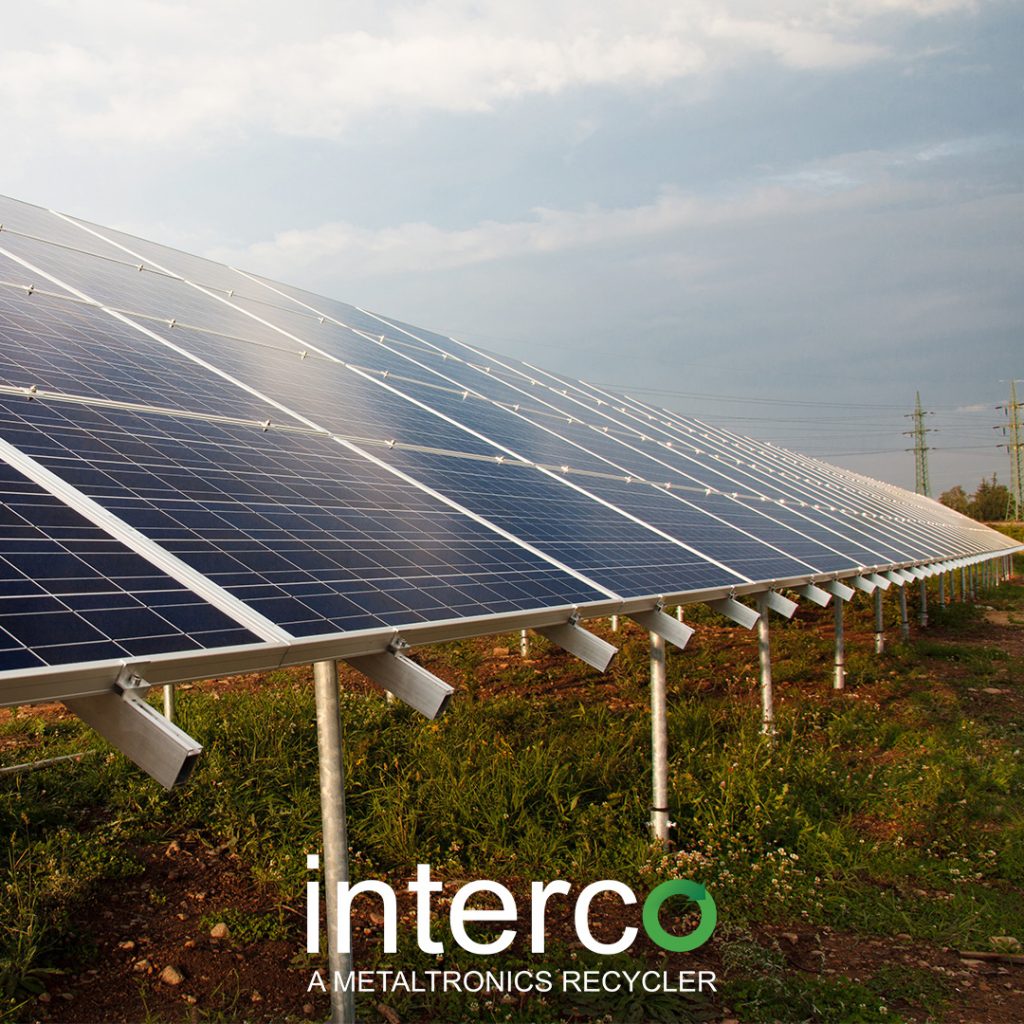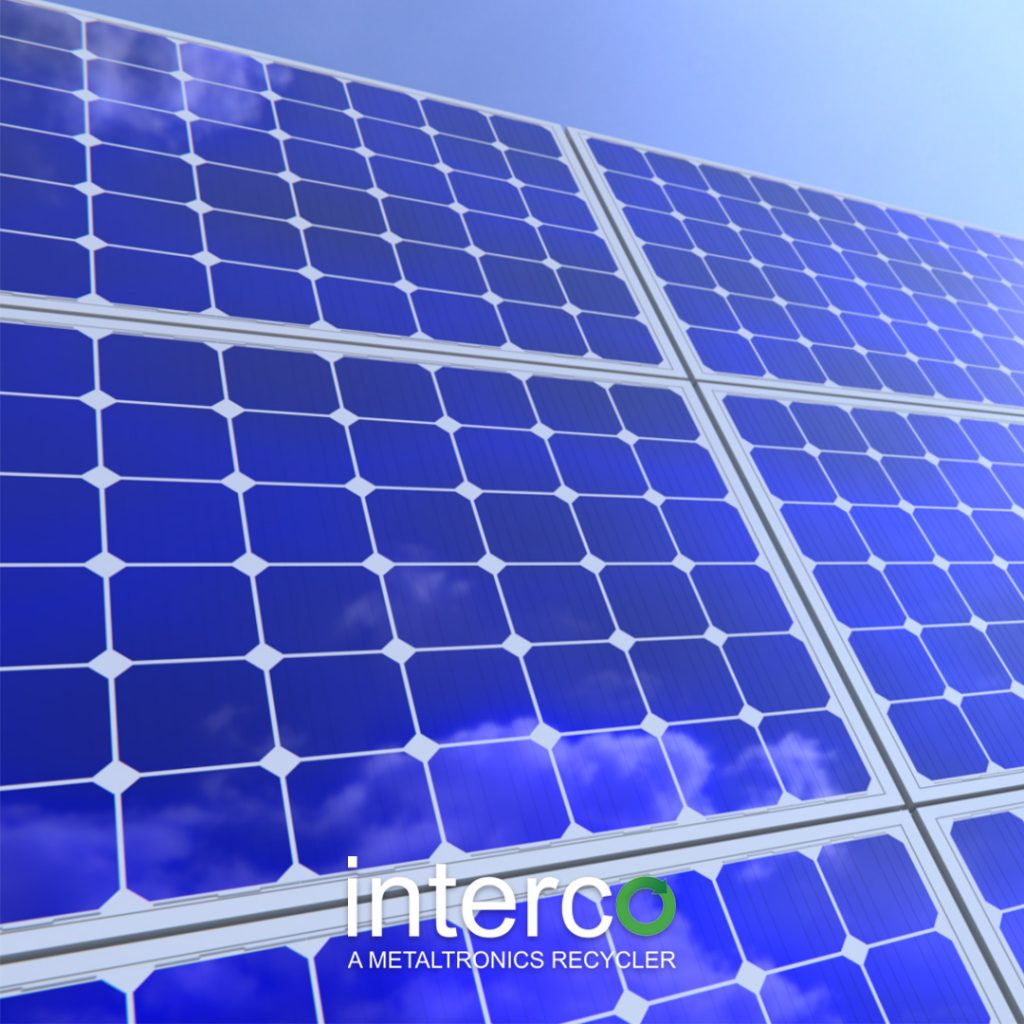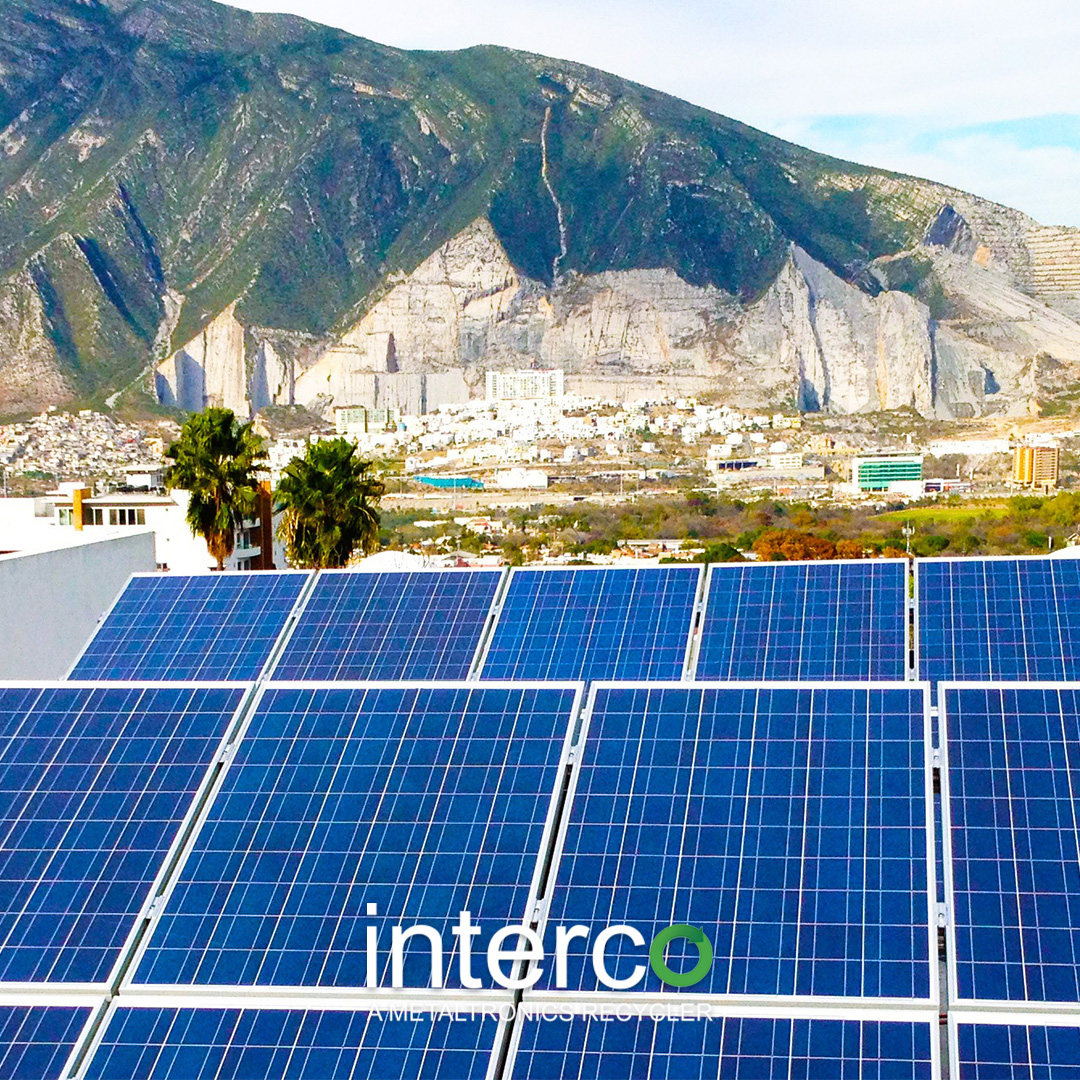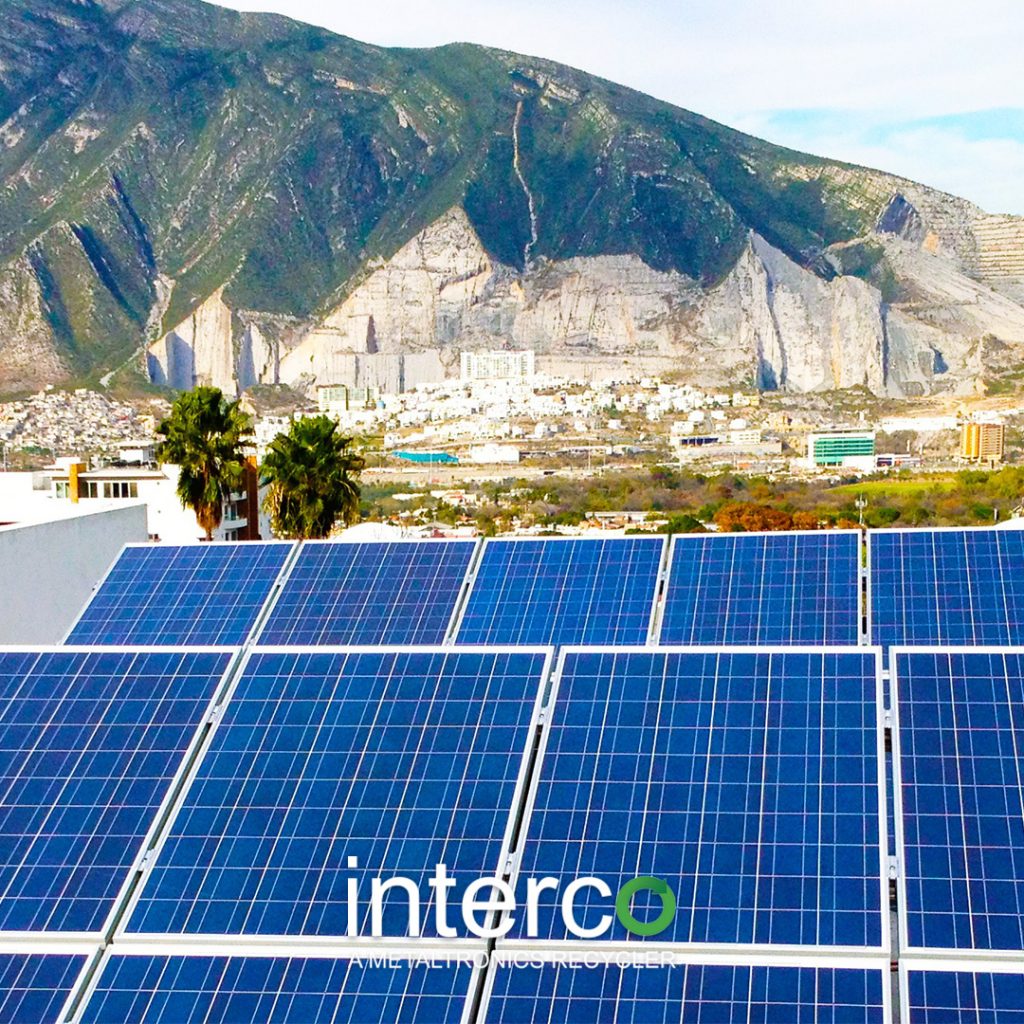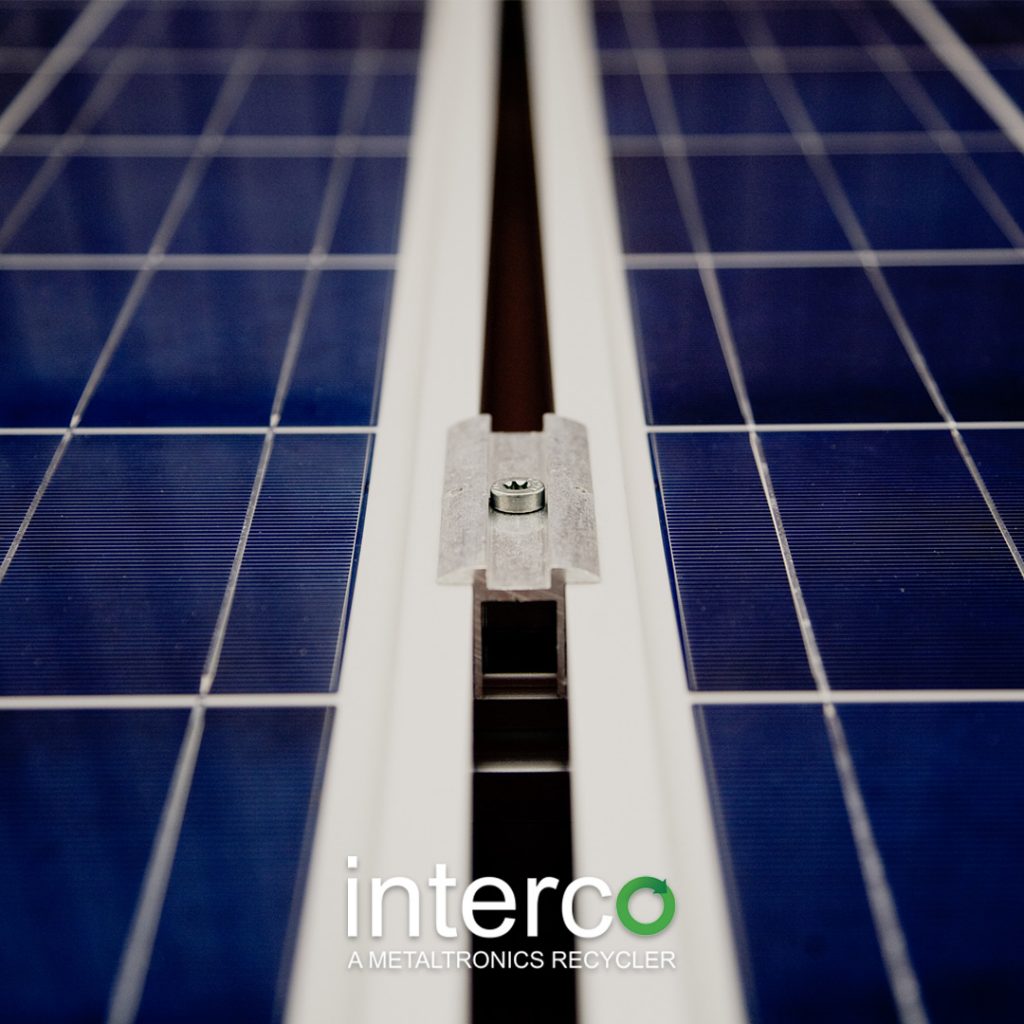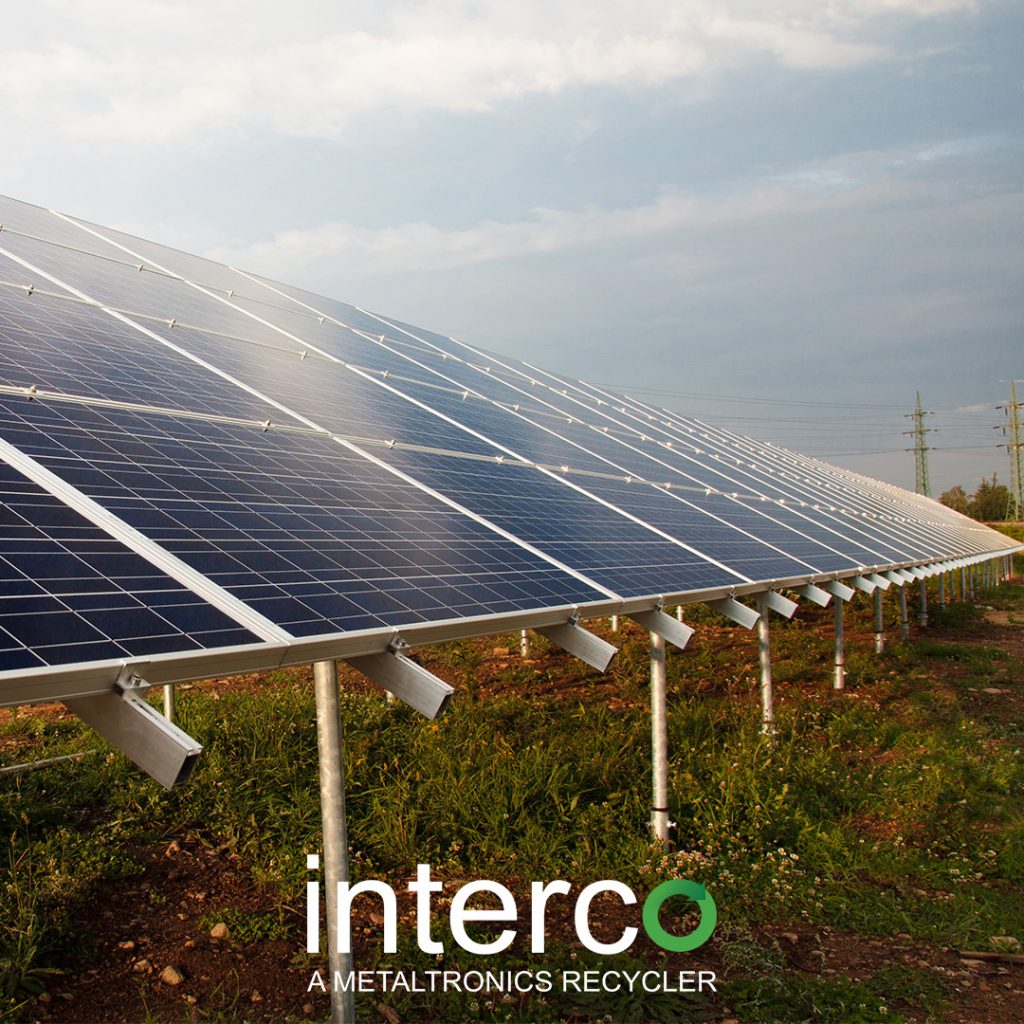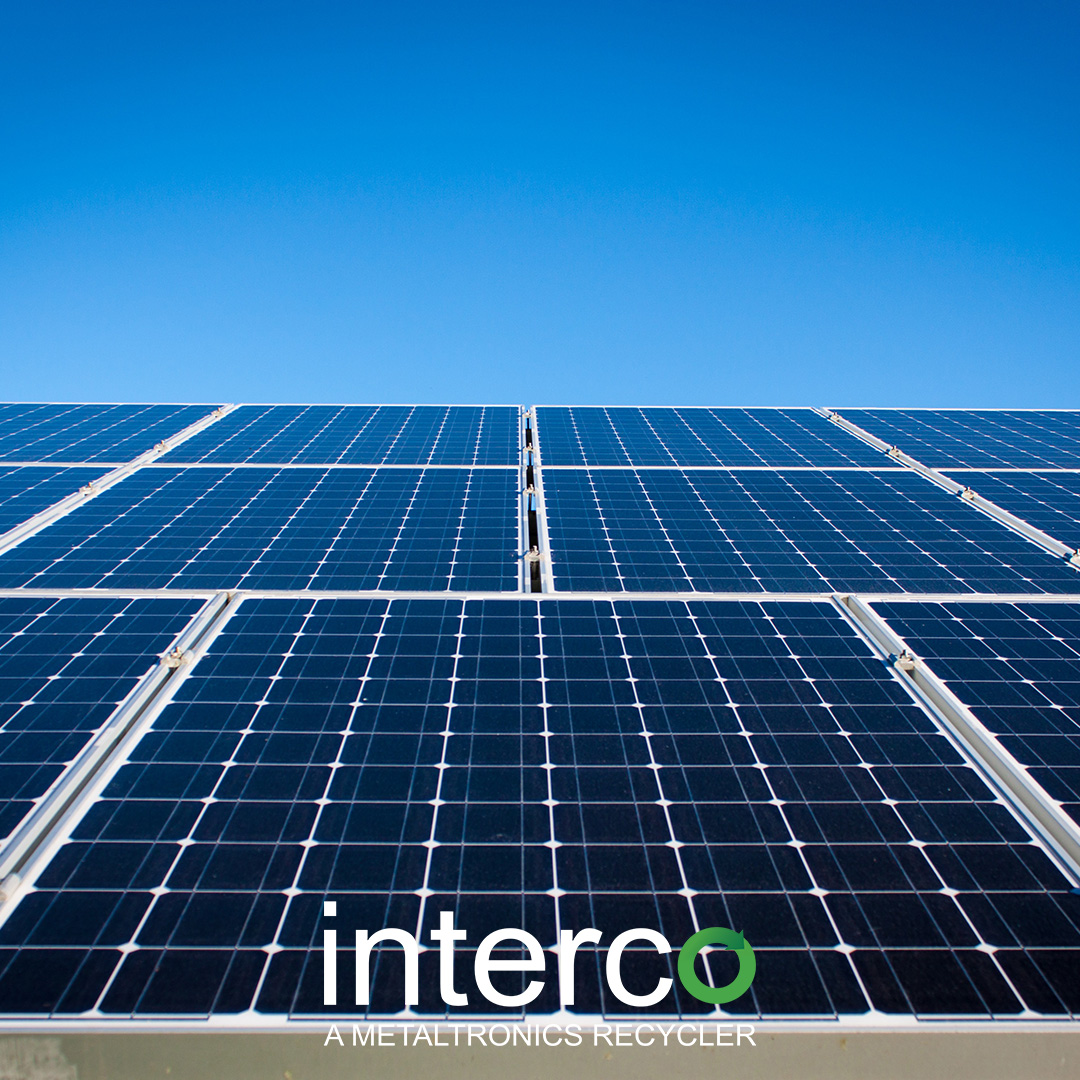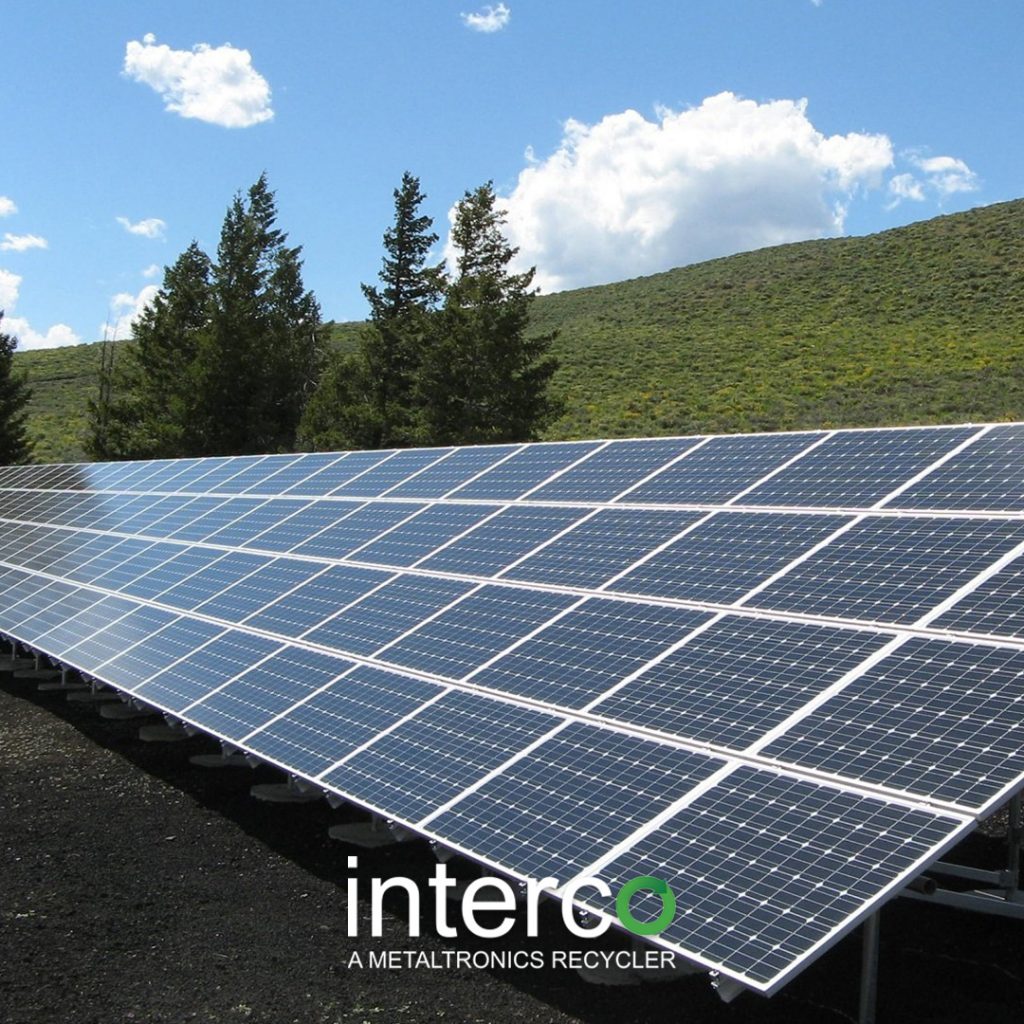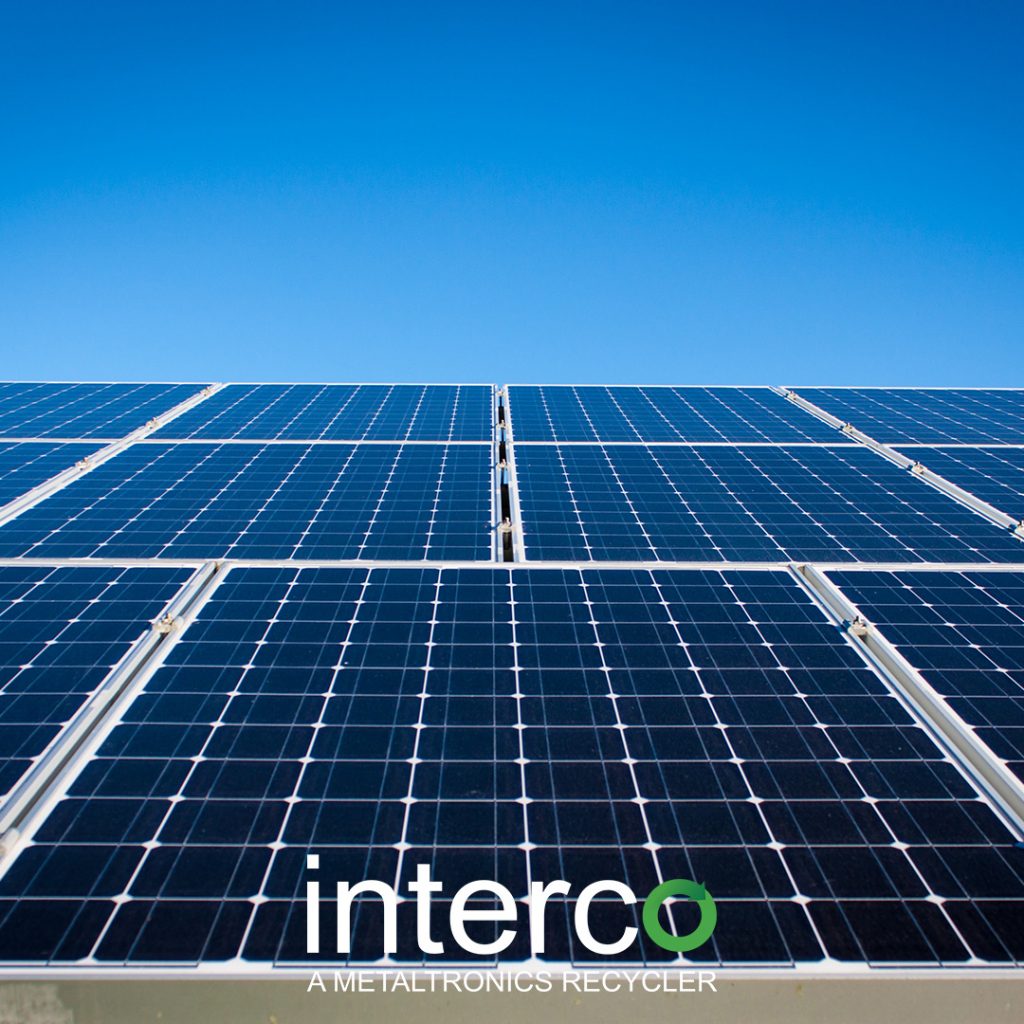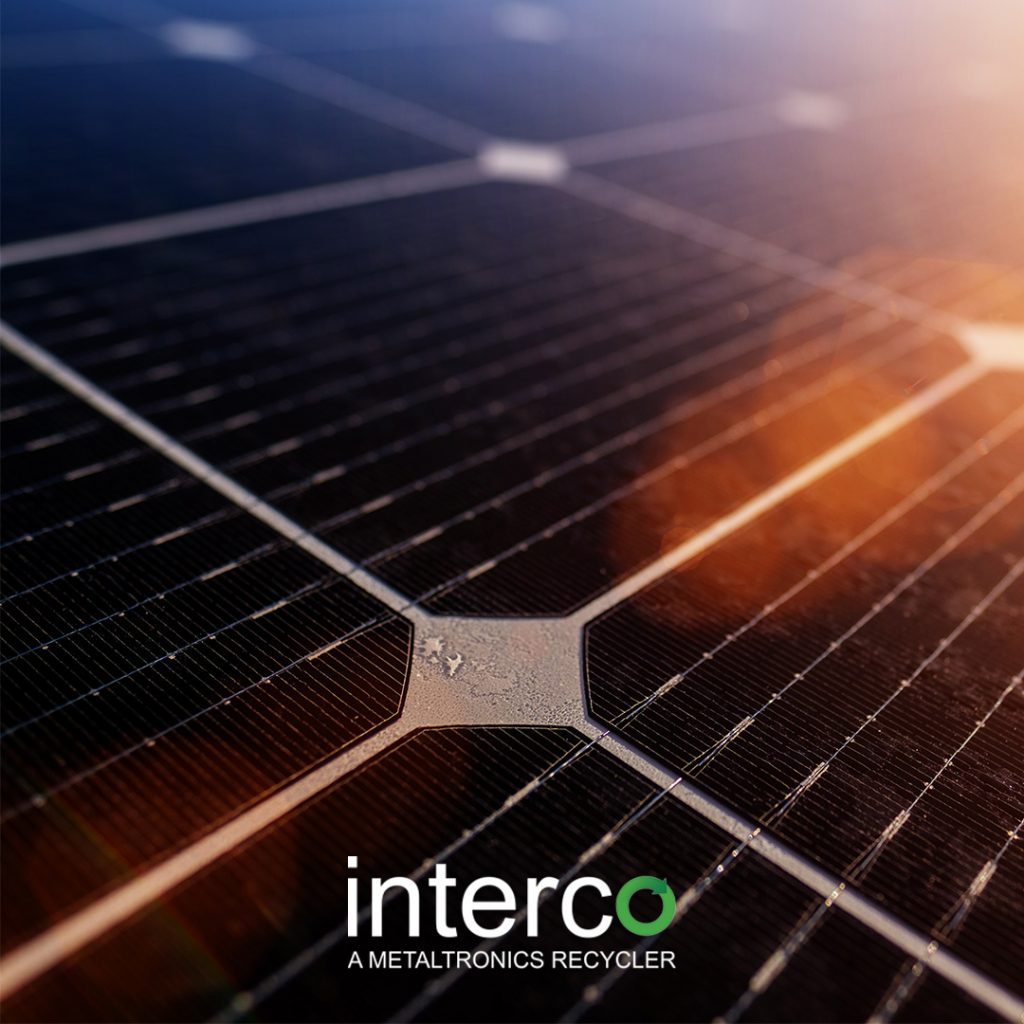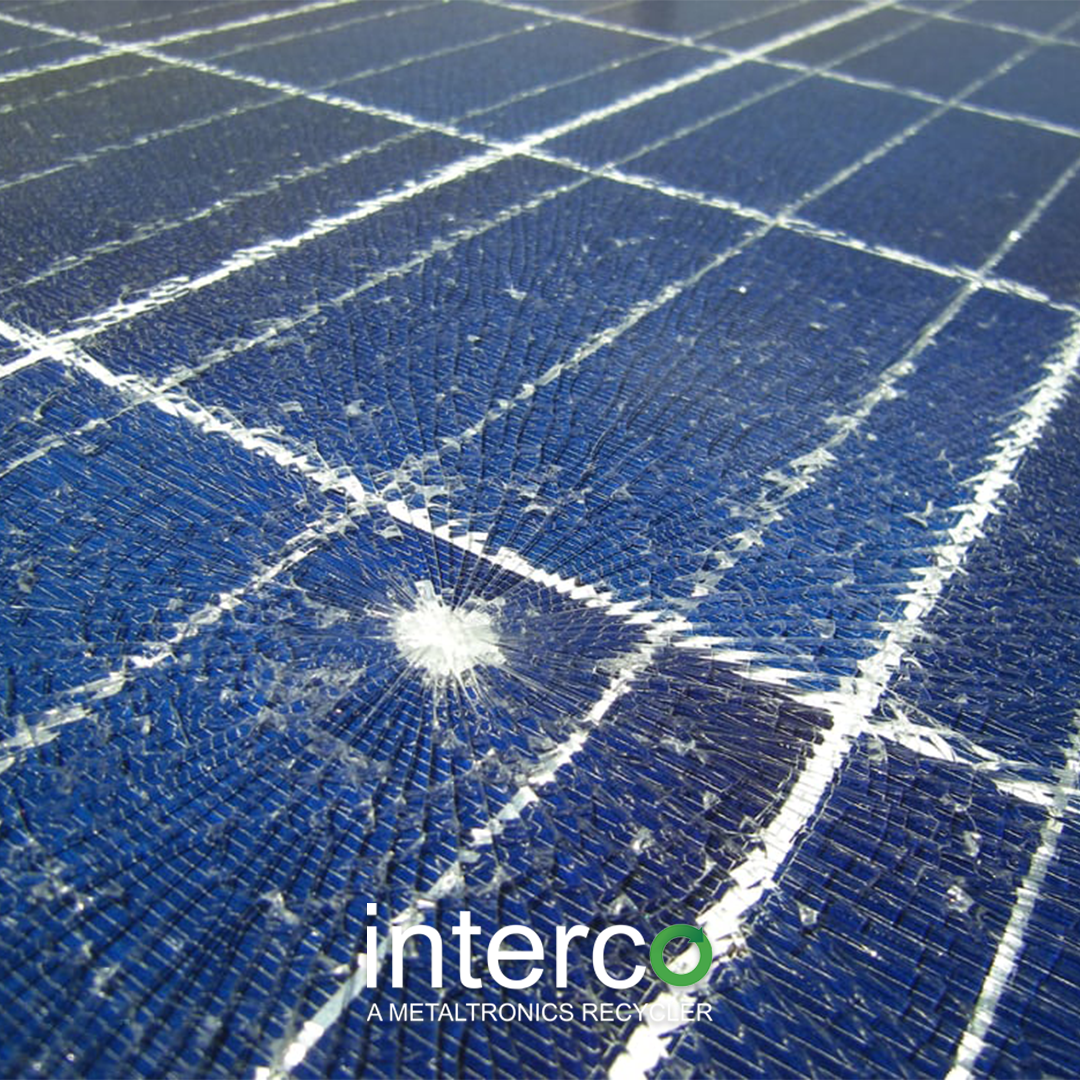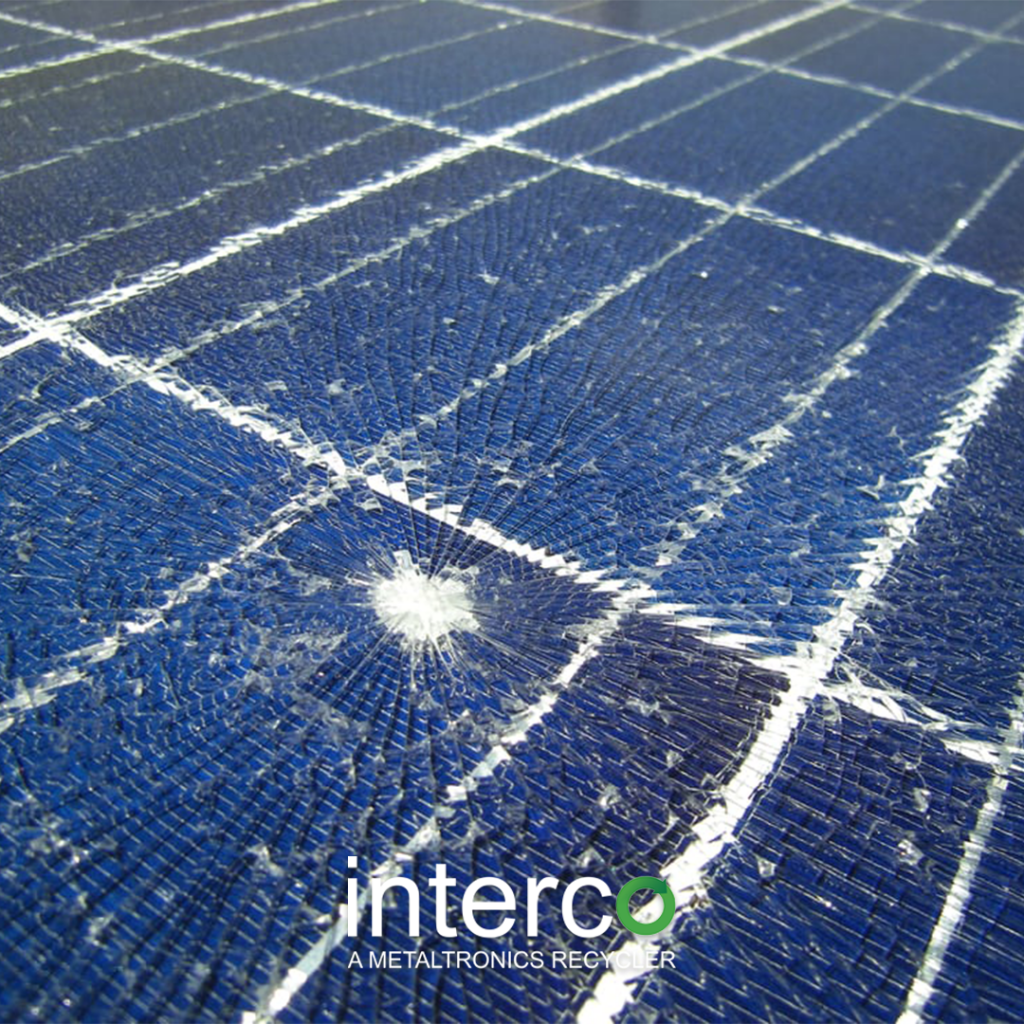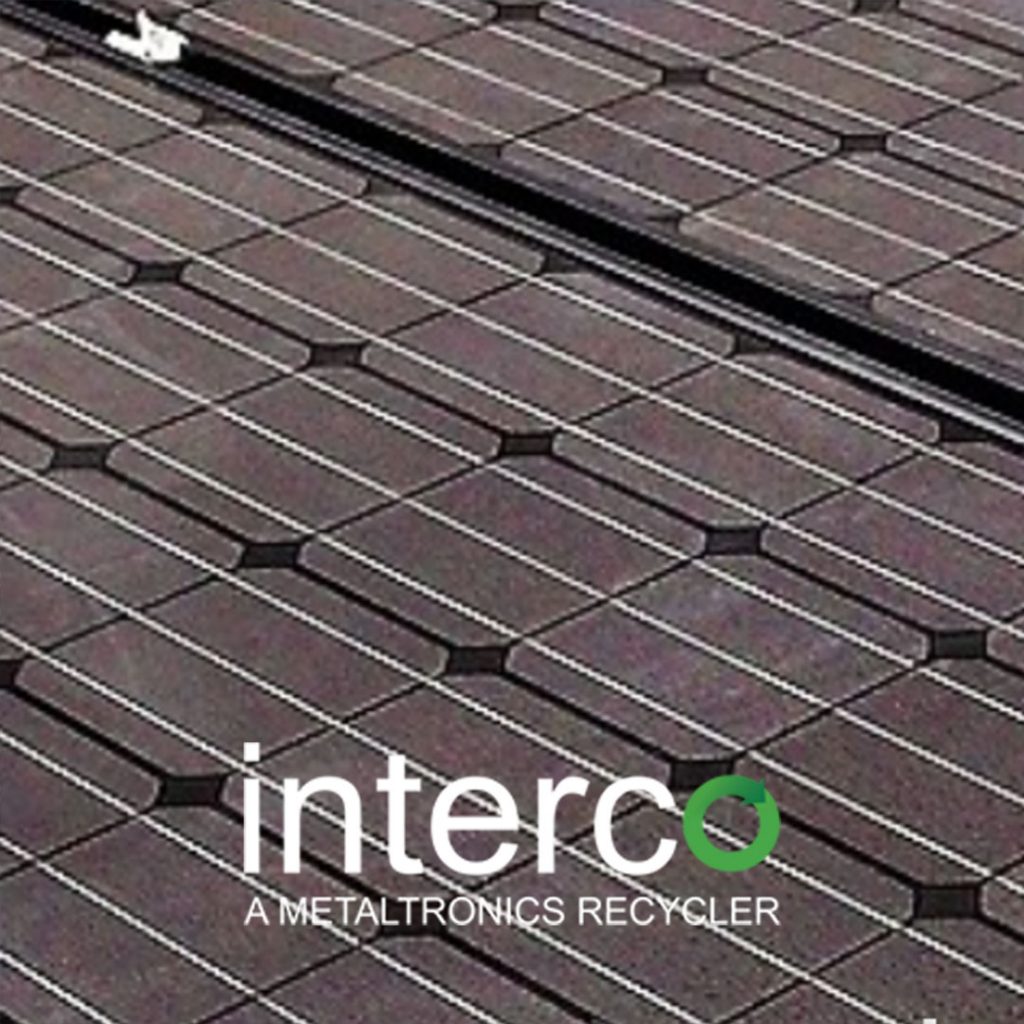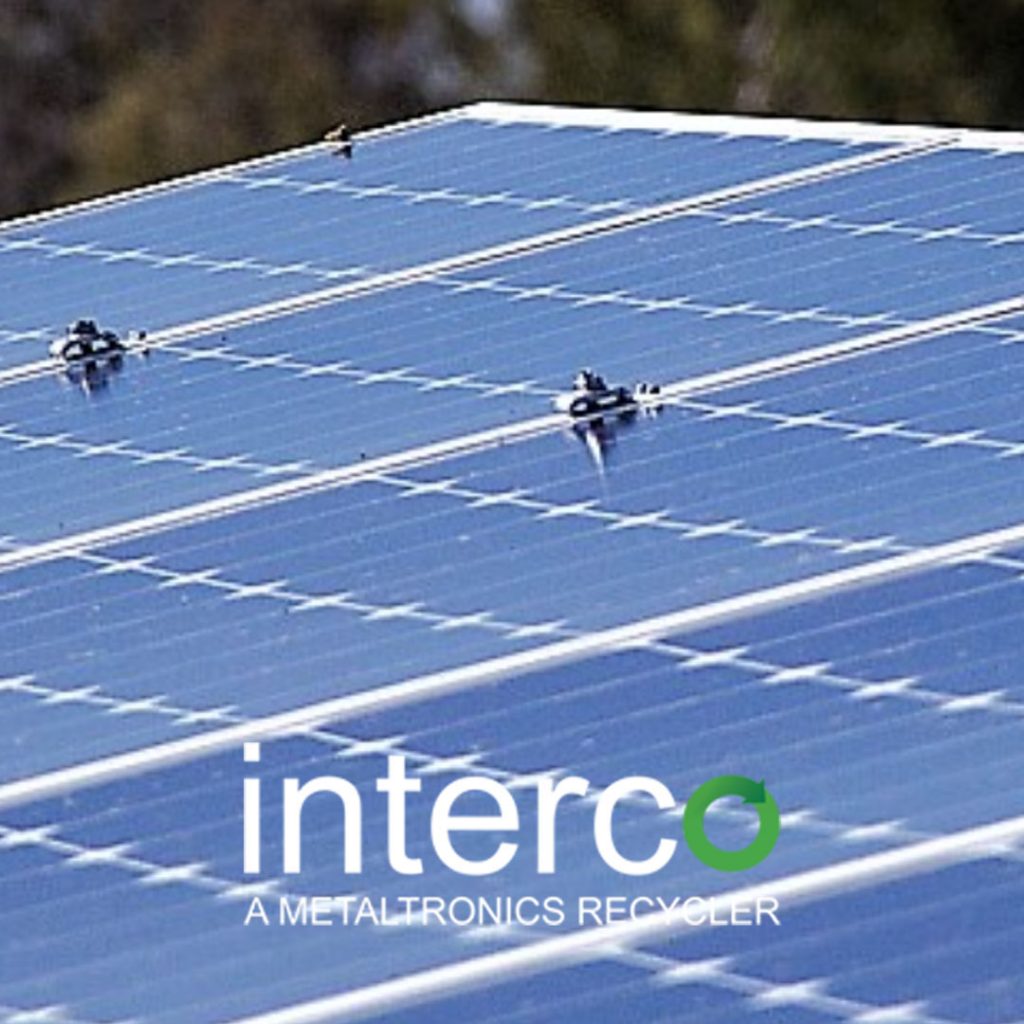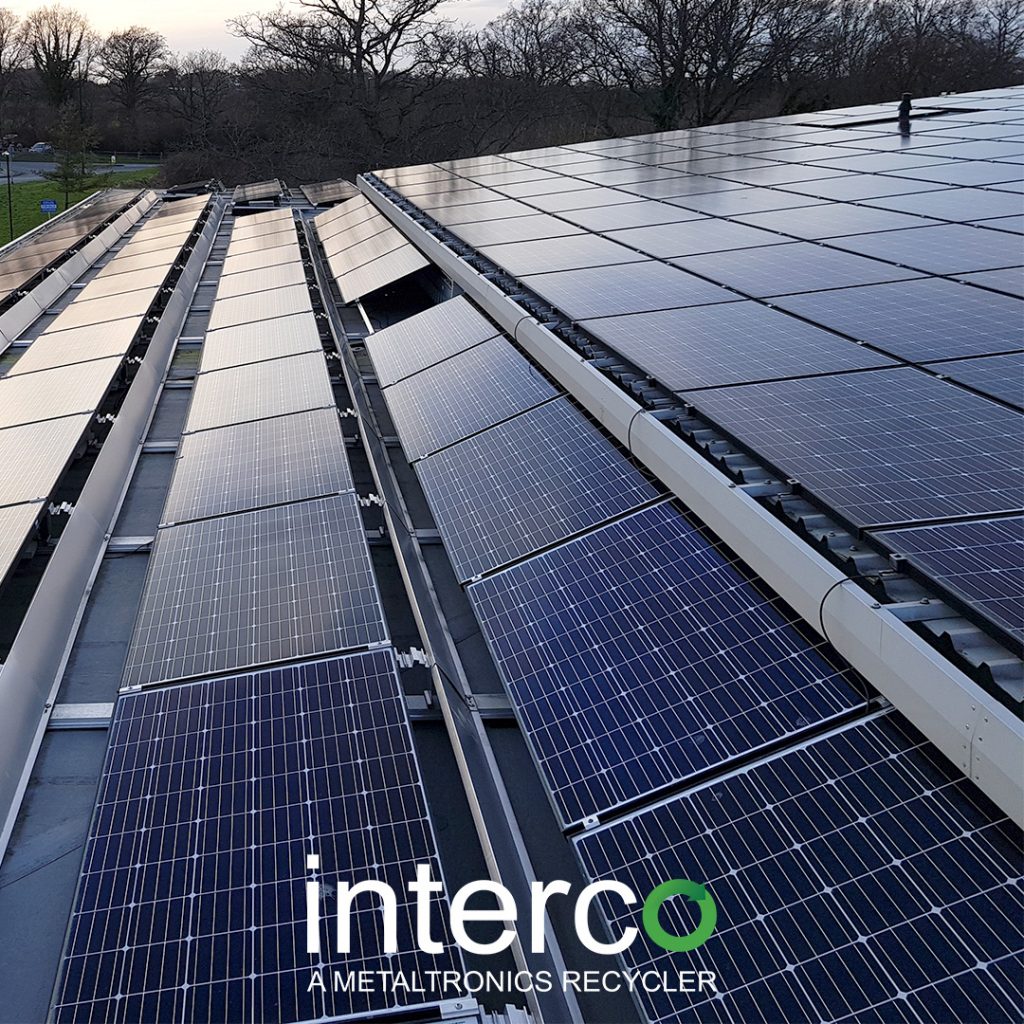
What Can I Do With My Scrap PV Solar Panel Modules?
In the United States, there were over 2 million installations of solar panels in the early 2000s. This means that those panels are roughly 20 years old. Additionally, solar panels have an average shelf life of 30 years or more, but they do become inefficient and worn after these periods. With such a high number of solar panels in use, scrap piles will build up quickly over the next few years.
So, what can you do with your scrap PV solar panel modules? Give them to a certified scrap PV solar panel modules recycler. In the United States, Interco is a leader in solar panel recycling.
Solar panel recycling is important for the environment. Furthermore, solar panel recycling can reduce what goes to the landfill, lower waste, and save on energy used to produce materials. Recycling solar panels helps recover over 80 percent of a crystalline silicon unit from each solar panel.
In about 30 years, a wave of panels may reach the end of their lifespans, excluding the hundreds of millions of panels that flooded the U.S. market in the last decade that may need to be disposed of sooner. Moreover, companies will need to decide how to deal with the increase in scrap piles and an option is working with a certified scrap PV solar panel modules recycler.
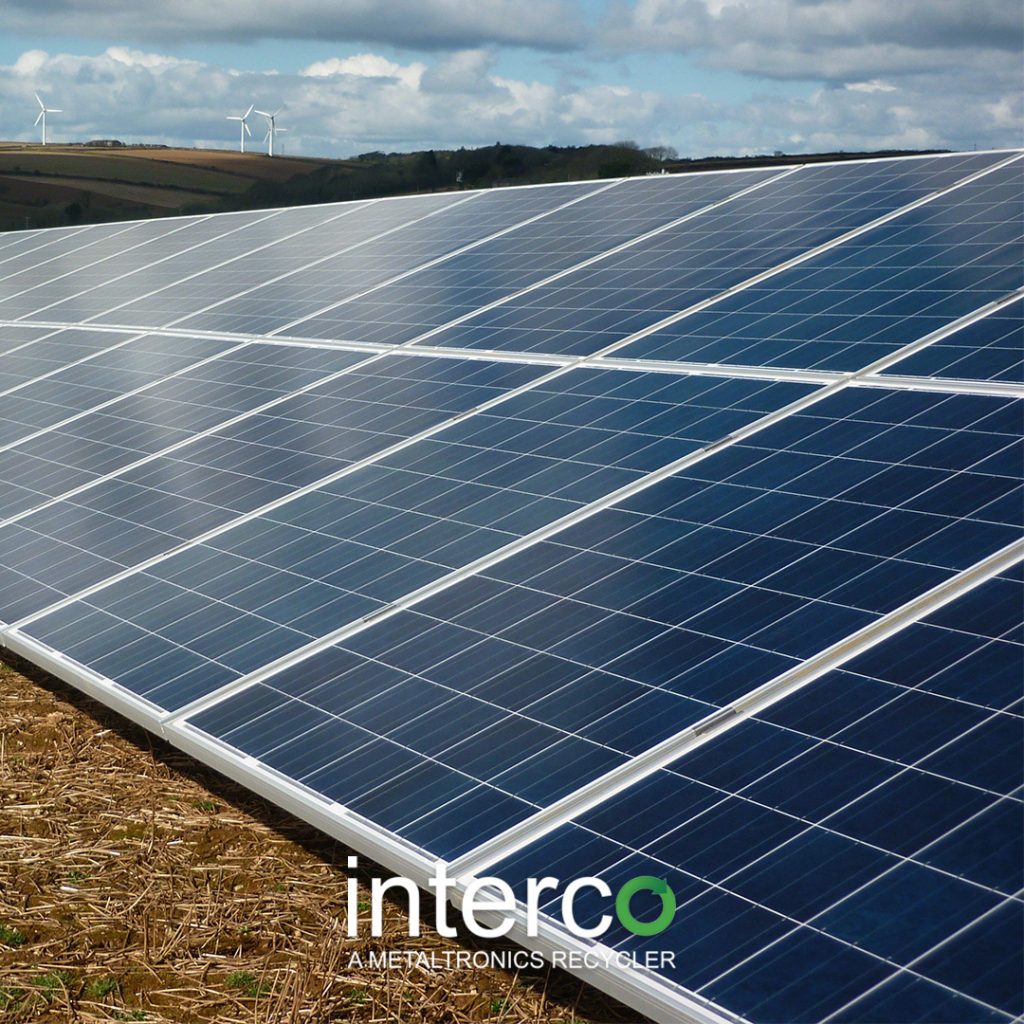
Why Recycle Scrap PV Solar Panel Modules?
Recycling solar panels yields more than 5 thousand tons of scrap metals. Including 2,000 tons of steel, 1,000 tons of aluminum, and 250 tons of copper. There are small amounts of rare metals as well, such as gallium and indium. They may also contain some lethal heavy metals like cadmium and lead.
Improper recycling can harm the environment and neighboring communities.
Here is a list of other recyclable components in solar panels: electric junction boxes, glass and plastics, and aluminum frames and brackets
Solar panels contribute to the earth’s sustainable development. Solar-powered photovoltaic (PV) panels convert the sun’s rays into electricity by transferring electrons in silicon cells using the photons of light from the sun.
They are a sustainable source of energy, reliant only on solar radiation, and capable of delivering electricity to homes and businesses. However, the panels eventually fail to perform efficiently. Companies will need to get rid of their solar panels and if disposed of irresponsibly, then they will be causing more problems. If solar panels end up in a landfill, then toxic substances would distribute from the PV cells and harm the environment. Using a certified scrap PV solar panel modules recycler, like Interco, would be beneficial to the environment.
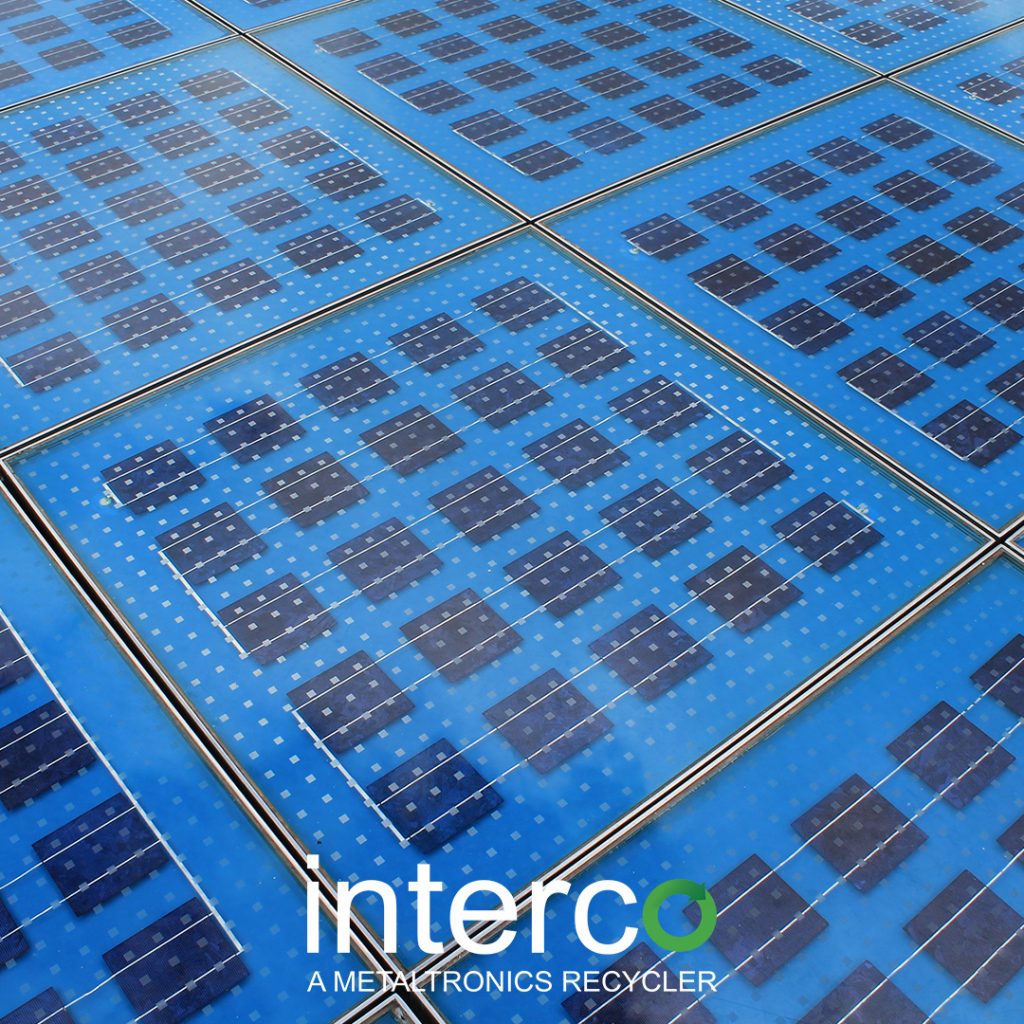
The Importance of a Certified Scrap PV Solar Panel Modules Recycler
A certified scrap PV solar panel modules recycler guarantees proper recycling practices are in place. In fact, if you have a scrapyard full of solar panels, sell them to a recycling center like Interco. Interco uses the safest end-of-life treatment, following the strictest guidelines.
Interco is a leader in solar panel recycling throughout the western hemisphere. The processing facility recycles solar panels according to their types. Furthermore, the two types Interco recycles are silicon-based and thin-filmed panels.
Because there are two solar panel types, there are two main methods of recycling:
Silicon Based Solar Panel Recycling
- Recycling silicon-based solar panels begins with the dismantling of the panels. This process separates its aluminum and glass. Both materials are individually recyclable.
- Then, they subject the rest of the modules to a temperature of 500◦ Celsius. This takes place in a thermal processing unit to ease the bonds between the cell elements.
- Once the heat is applied, the plastic evaporates. This leaves the silicon cells for processing.
- After the heat treatment, the melting process separates the hardware. The separate the hardware, which is 80 percent reusable, from the silicon particles.
- As a result, material is ready for use in the new silicon modules.
Thin-Film Based Solar Panel Recycling
- Recycling solar panels of this type speeds up the process. It completes the process faster and more drastically.
- Machines shred the thin film-based panels from the mill the material. This ensures all particles are approximately 4-5 mm in size.
- Unlike silicon-based panels, a rotating screw separates the remaining solid and liquid materials.
- Consequently, the process purifies liquids through precipitation. It also separates them from the semiconductor materials through a metal processor.
- Recyclers remove the contaminated solid materials containing inter-layer materials. Furthermore, a vibrating surface separates these materials.
- Approximately 90% of these materials are reintroduced. Most can be used in the re-manufacturing processes.
Silicon-based panels are more widely used than thin-filmed based panels. This is because silicon-based panels use process technologies with an enormous database. This makes them more reliable.
Without recycling, these scrap solar panels will cause additional landfills. Those who scrap can reap the benefits of working with a certified scrap PV solar panel modules recycler by assisting to reduce landfills, protect natural resources, and earn a profit.
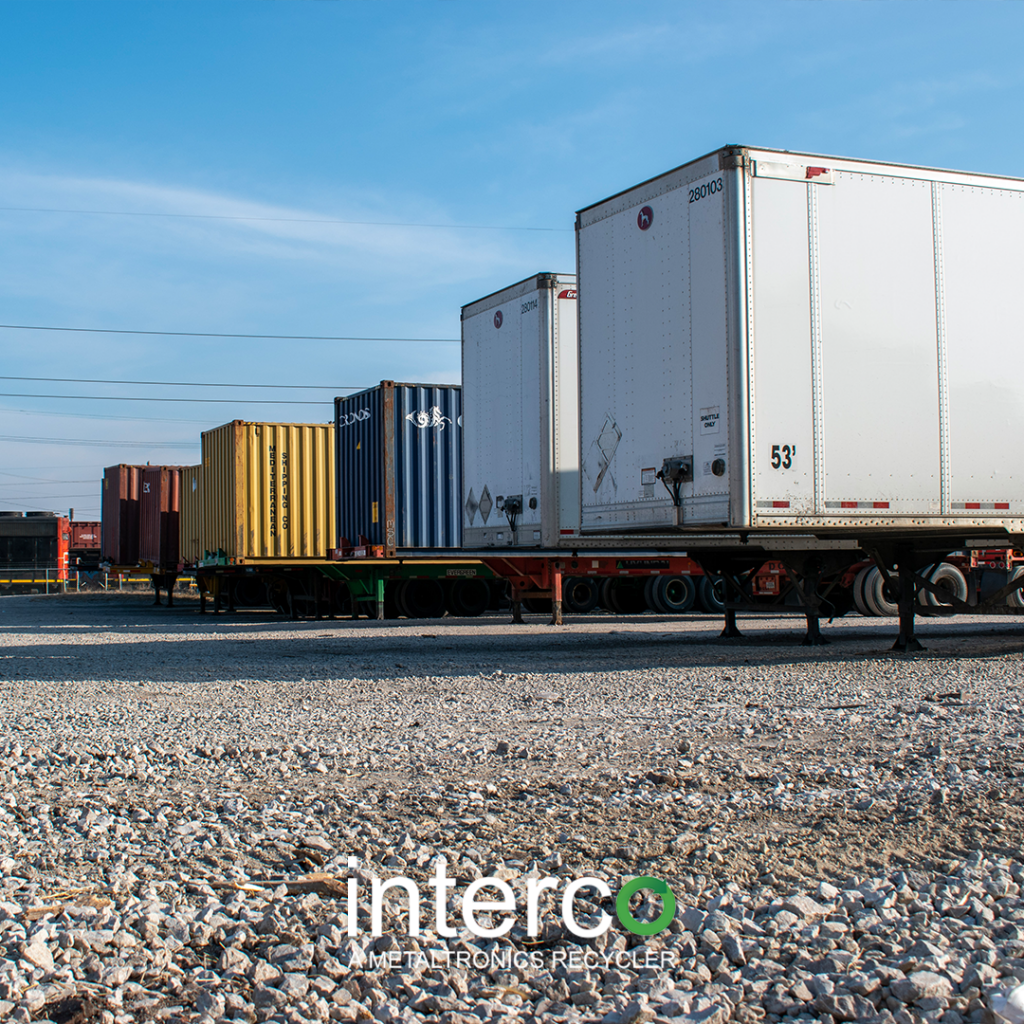
About Interco
Interco is a global recycling company providing metals, computers, and electronics recycling services to industrial, dealer, and government organizations throughout the western hemisphere. The company specializes in the placement of smelter-ready materials throughout the world utilizing established partnerships with end consumers in the United States, Europe, and Asia.
The company has been a member of the Institute of Scrap Recycling Industries, Inc. (ISRI) since 1996.
ISRI is the voice of the recycling industry advocating safe, economically sustainable, and environmentally responsible recycling through networking, advocacy, and education.
Furthermore, Interco offers creative solutions, competitive pricing, and quality service throughout the supply chain. The company has been an industry leader providing metals, computers, and electronics recycling services with a focused track record of innovation and integrity in since 1996.
Interco, as an ISO 45001 Occupational Health & Safety Assessment Series Management System certified company, recognizes and manages potential health and safety risks throughout the company and the diverging supply chain. The ISO 45001 standard is internationally accepted as the highest standard of health and safety management in existence.
With a convenient, central location just across the Mississippi River from St. Louis, Missouri in Madison, Illinois, Interco is within close proximity to four major interstates (I-44, I-55, I-64, and I-70) that intersect all of the Midwest and Central USA possibilities.
Interco is a Certified Scrap PV Solar Panel Modules Recycler
Interco recycles more than 250,000 solar panels per year. Solar panel installers, solar panel manufacturers, and utility companies across the USA use Interco to recycle older and obsolete solar panels. Solar panels that were installed in the early 2000s will be reaching the end of their lives sooner rather than later. Companies will need to decide how to handle the scrap piles building up. The answer is working with a certified scrap PV solar panel modules recycler, like Interco. To learn more about Interco, click here.
